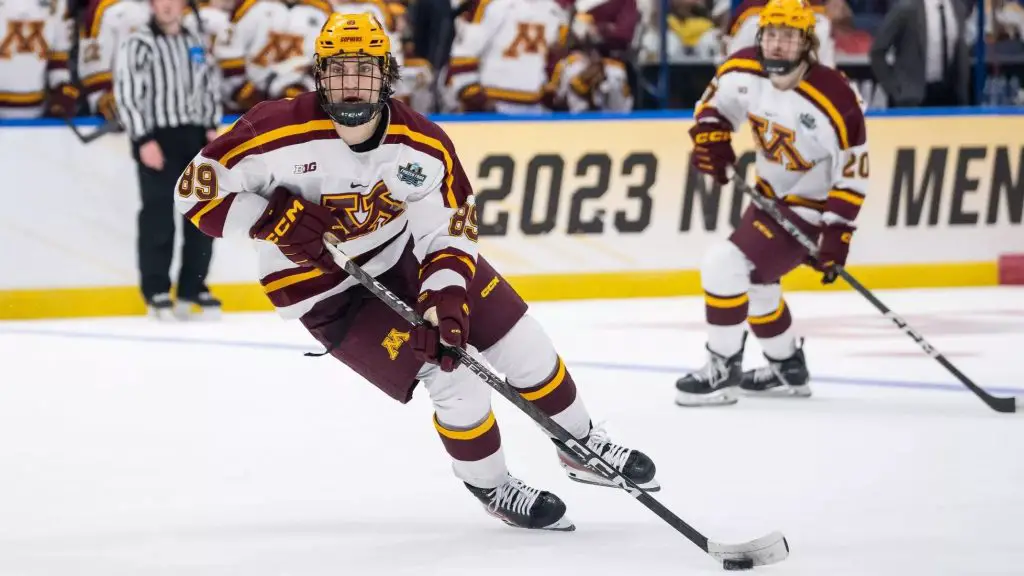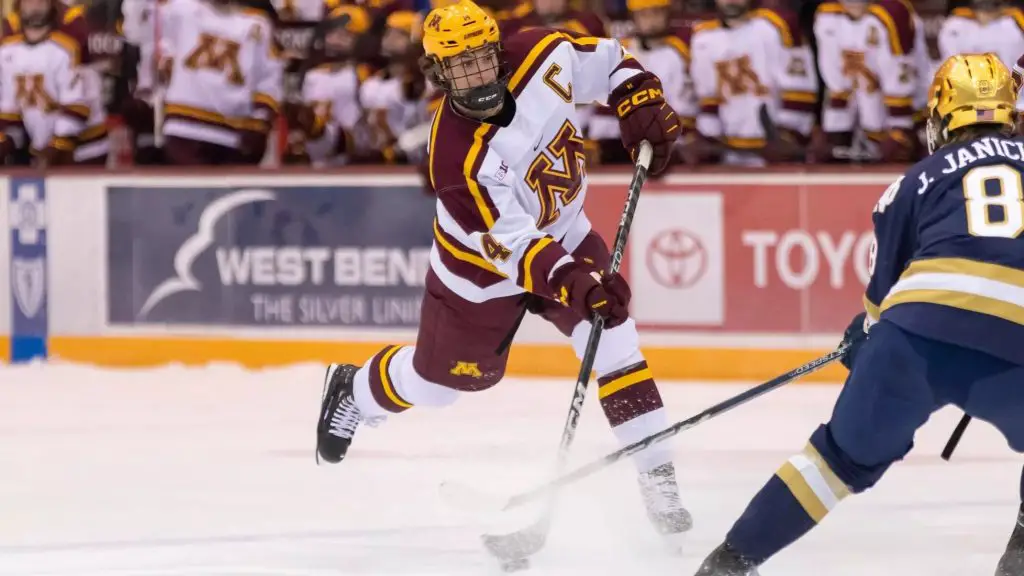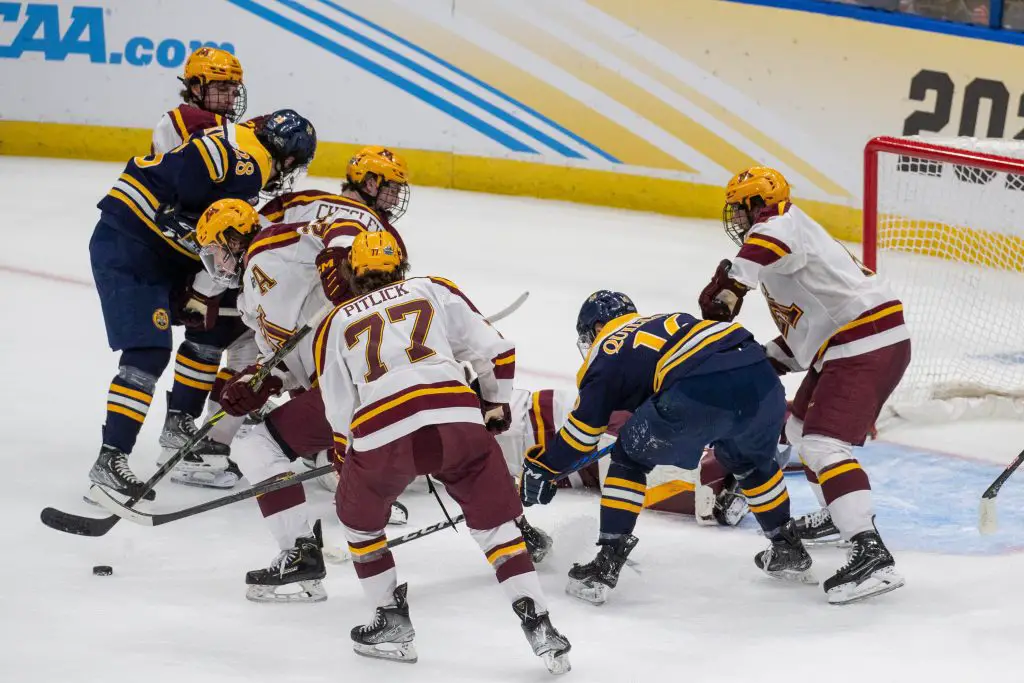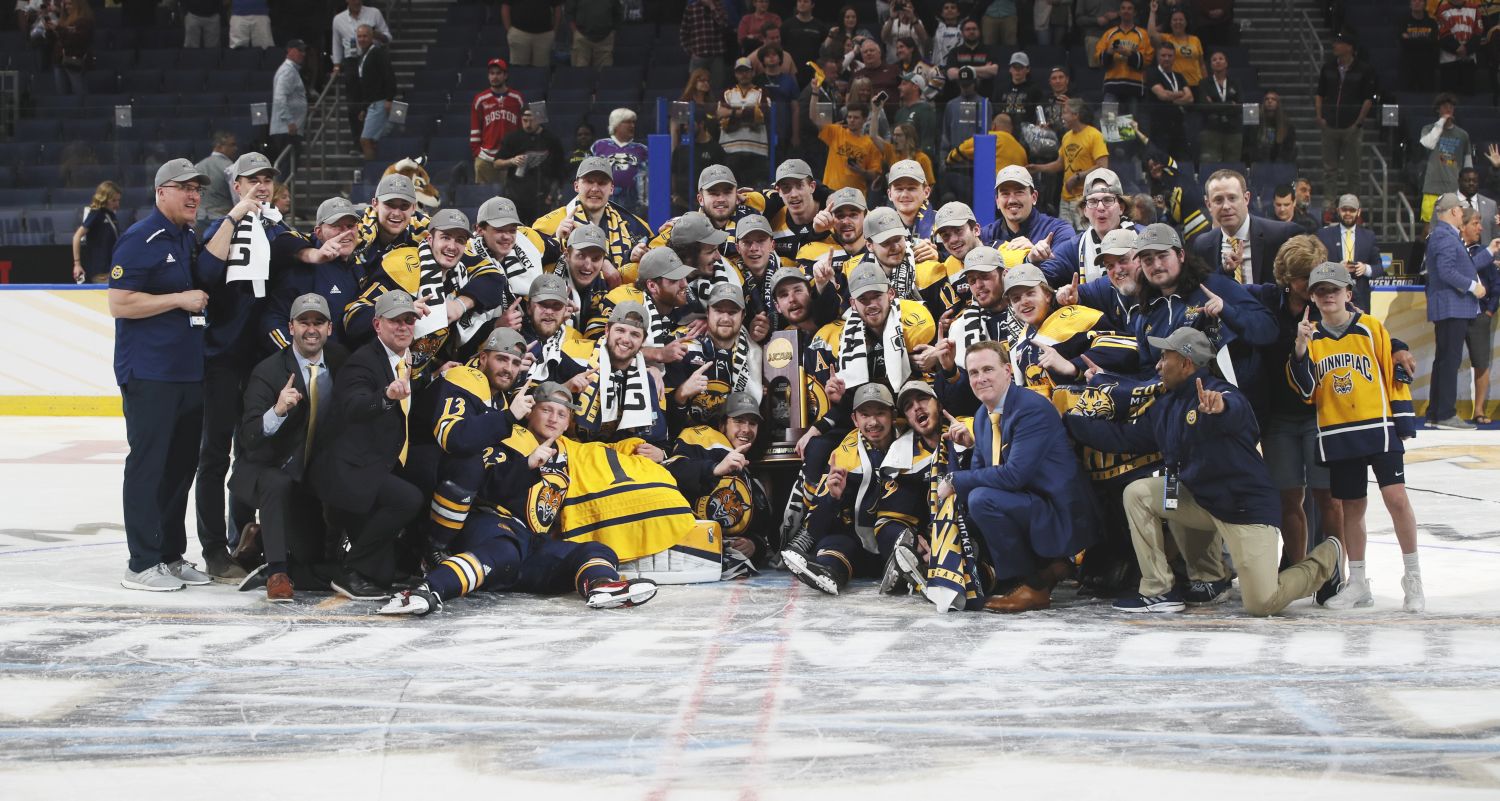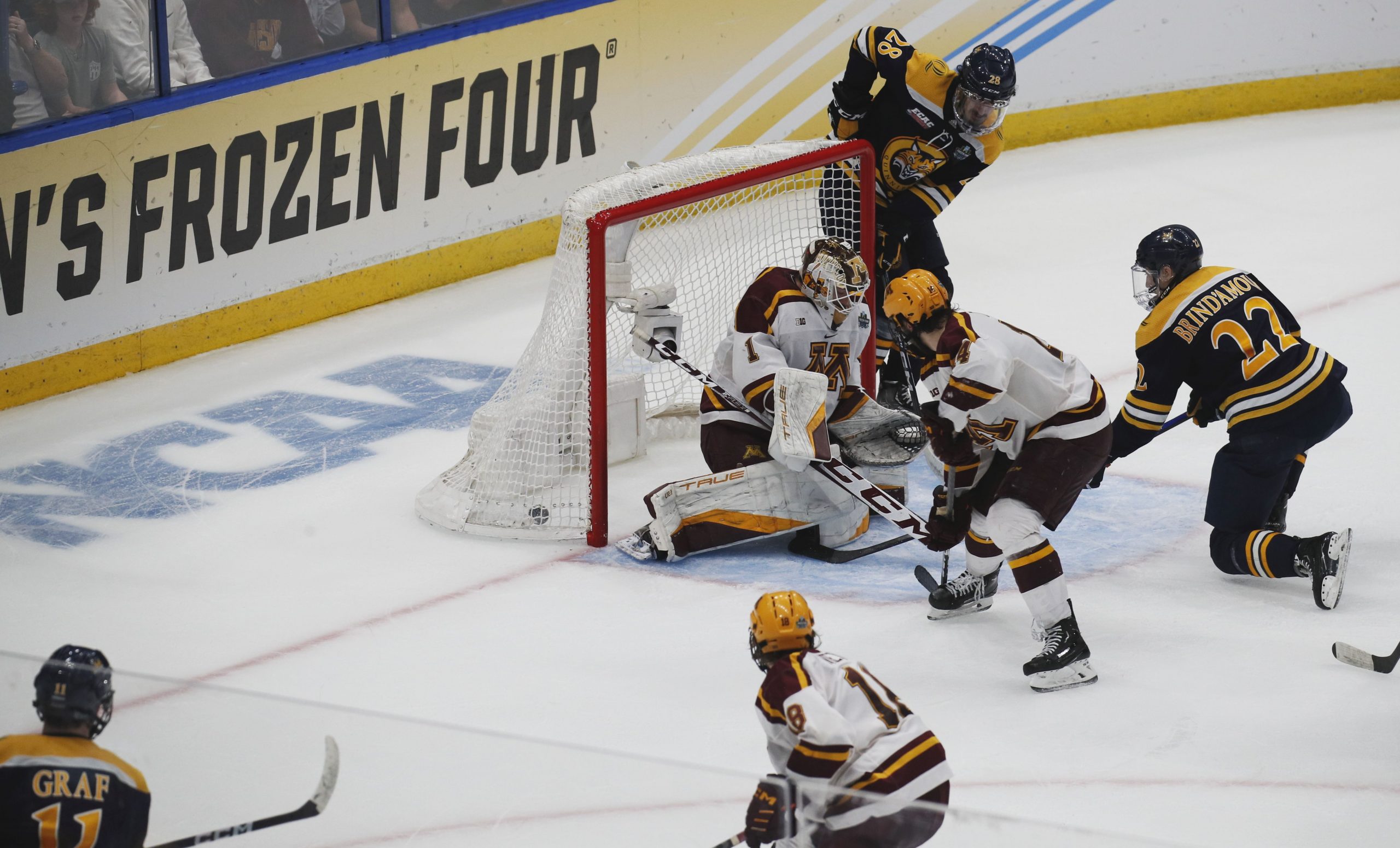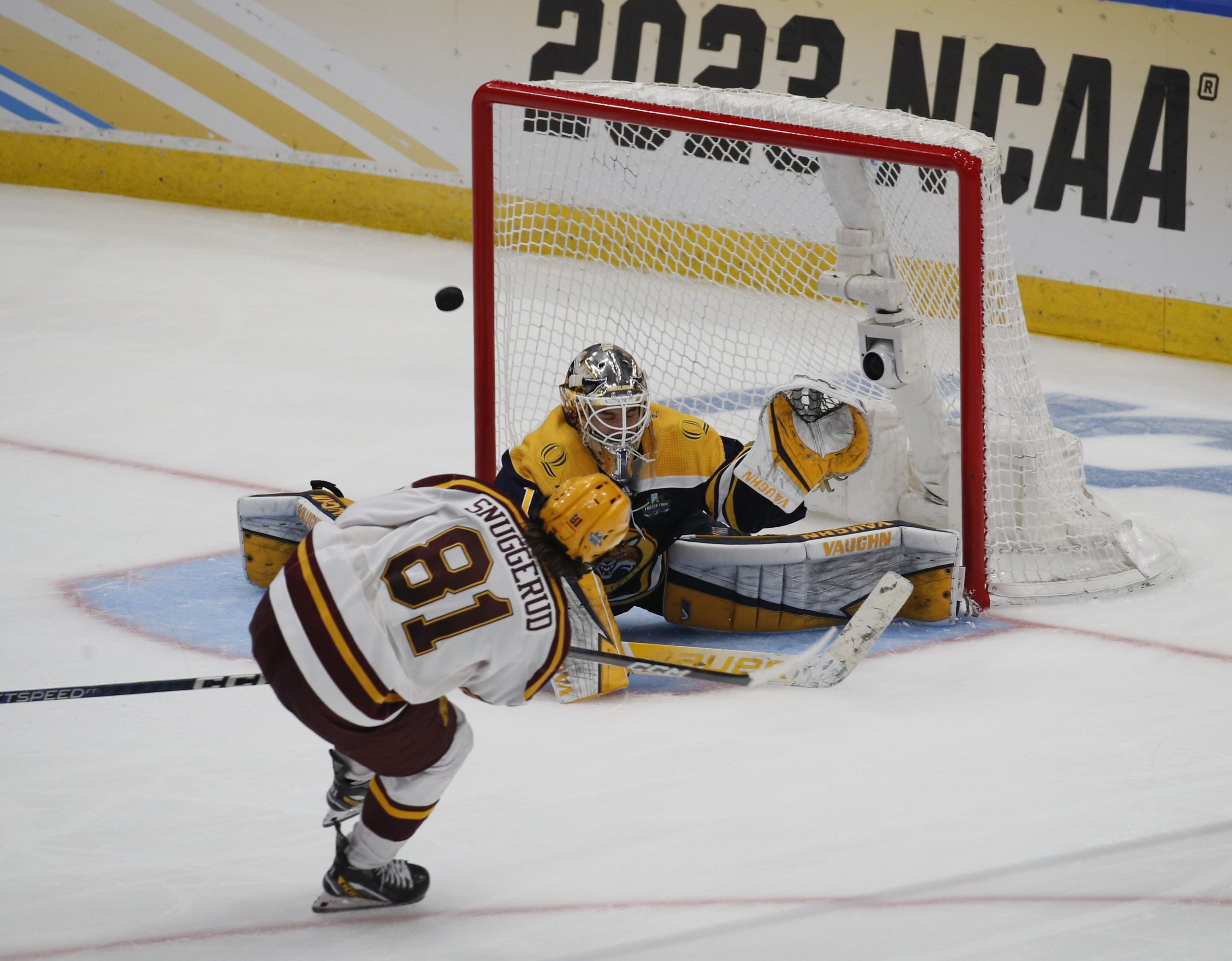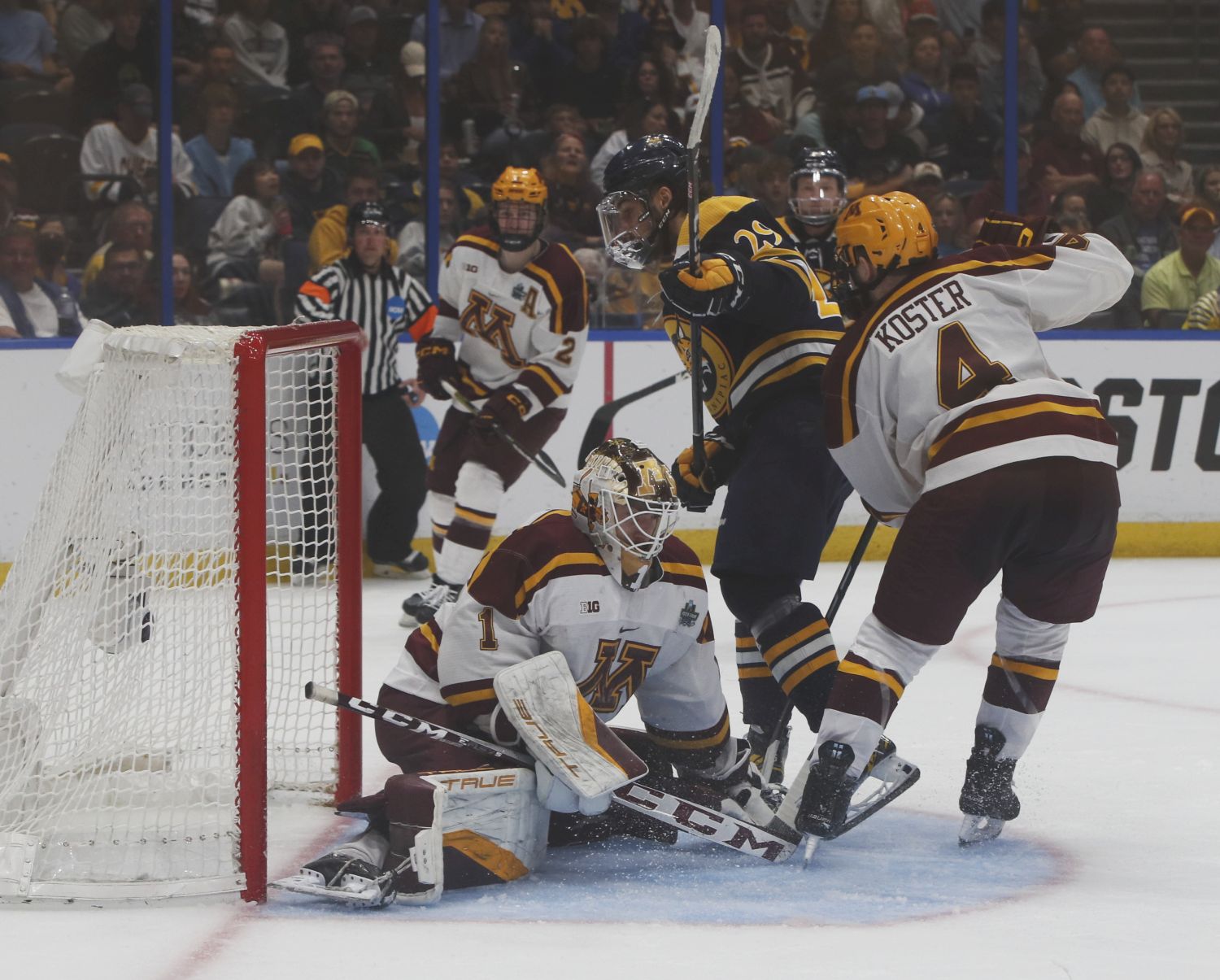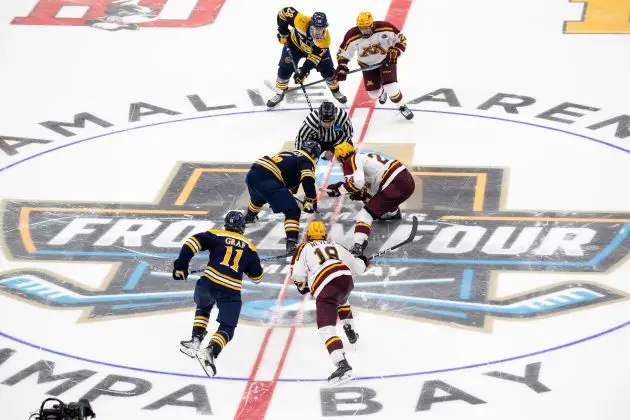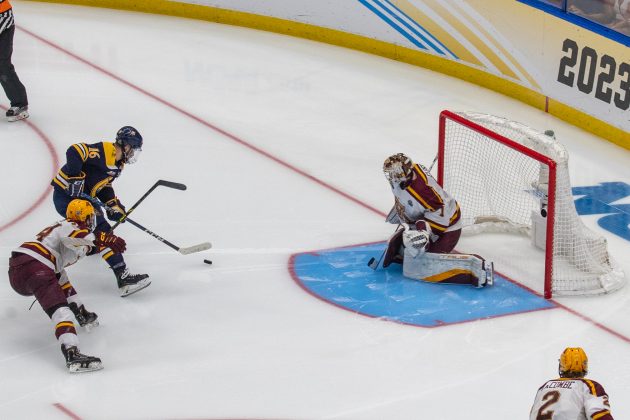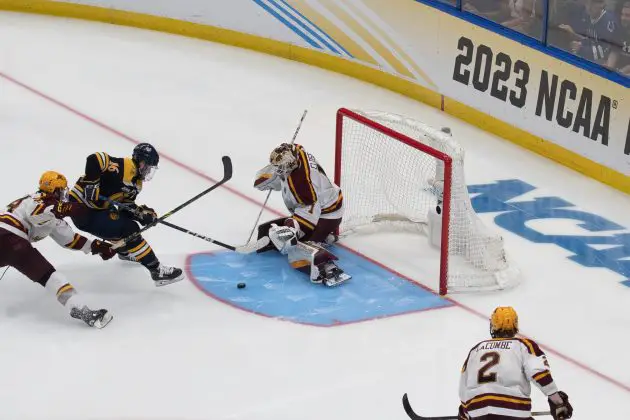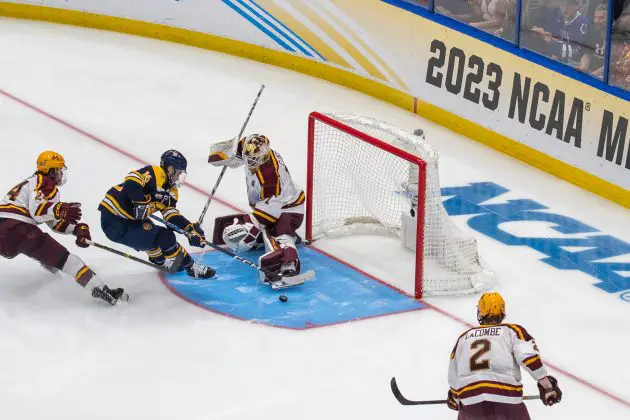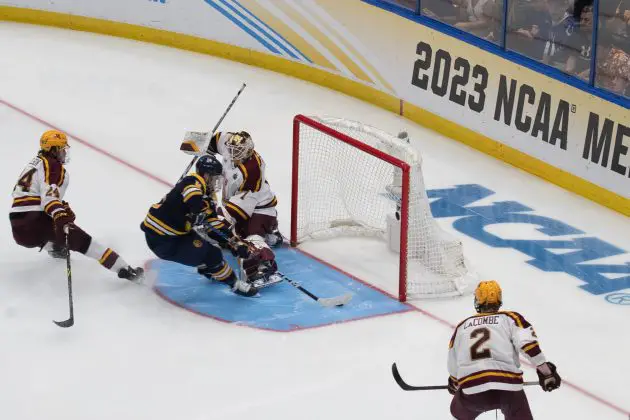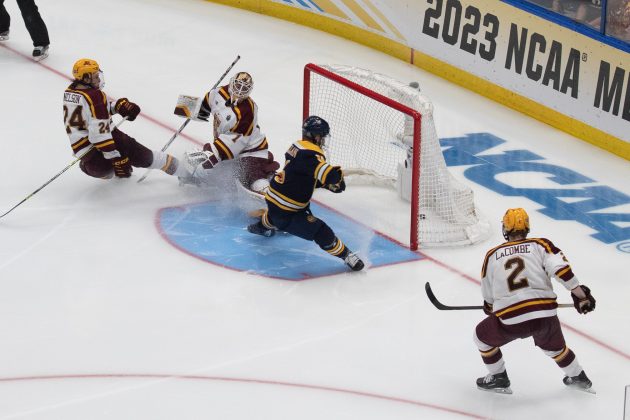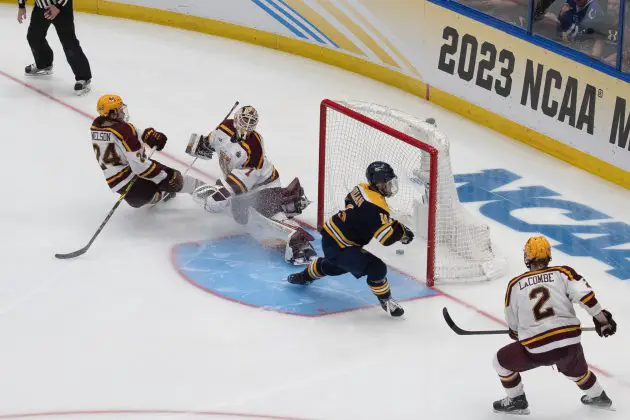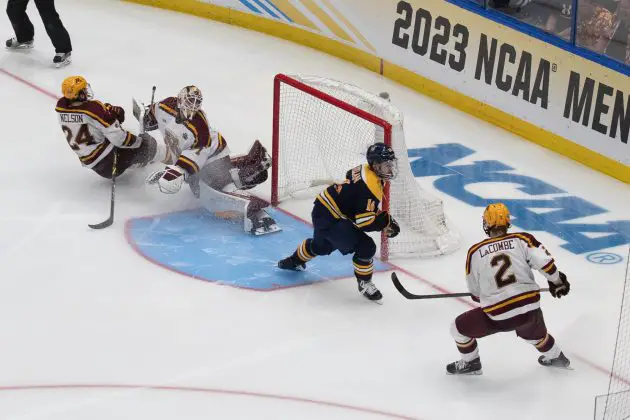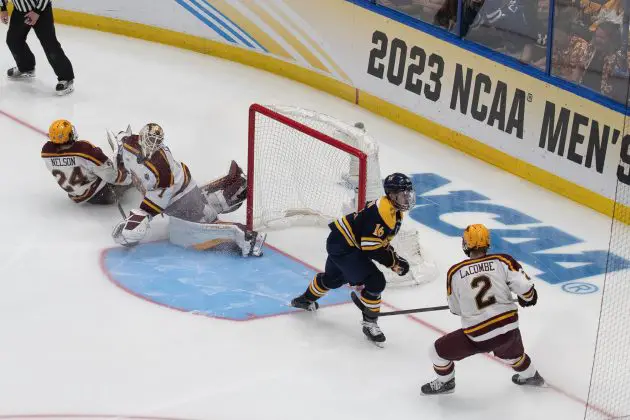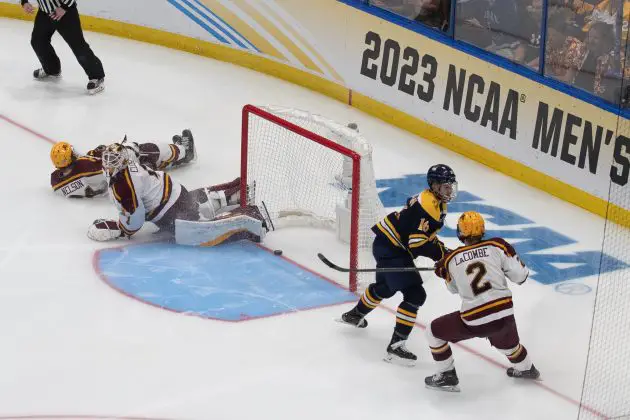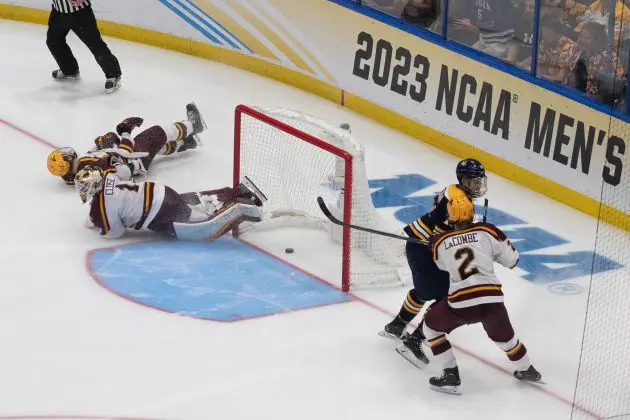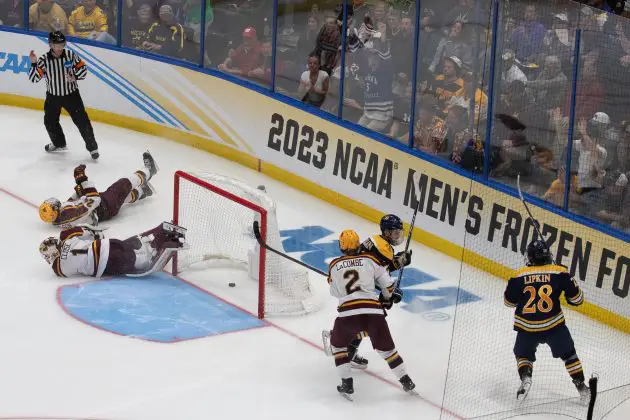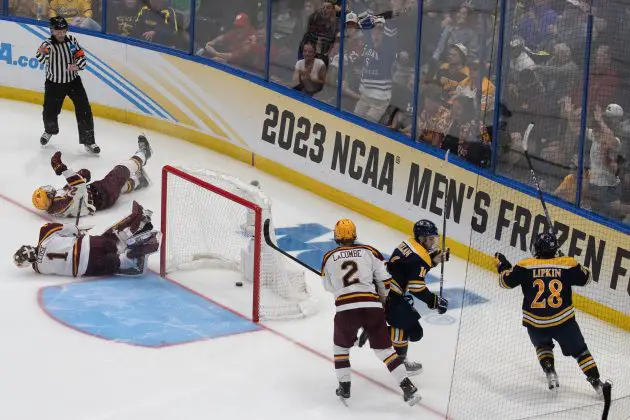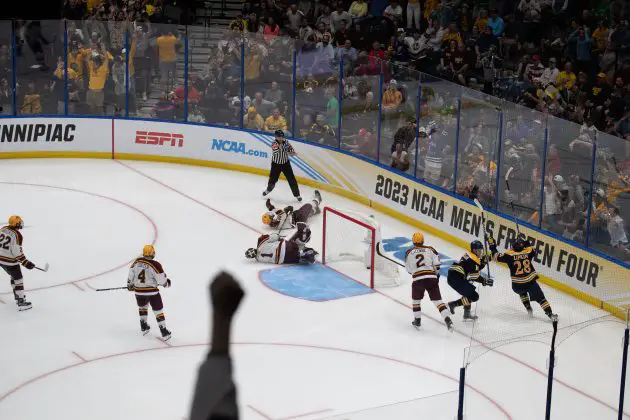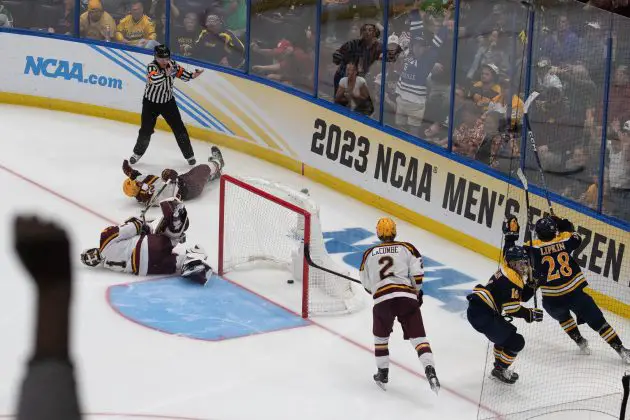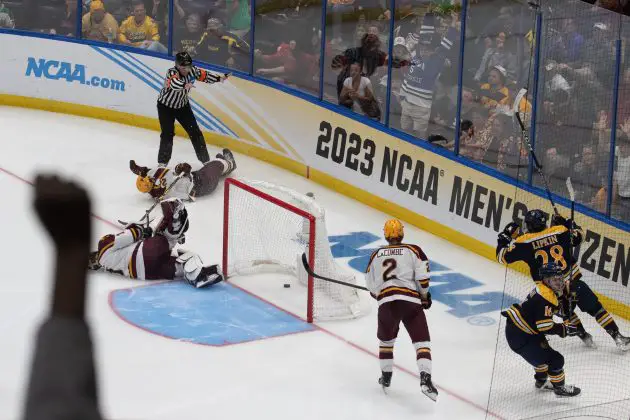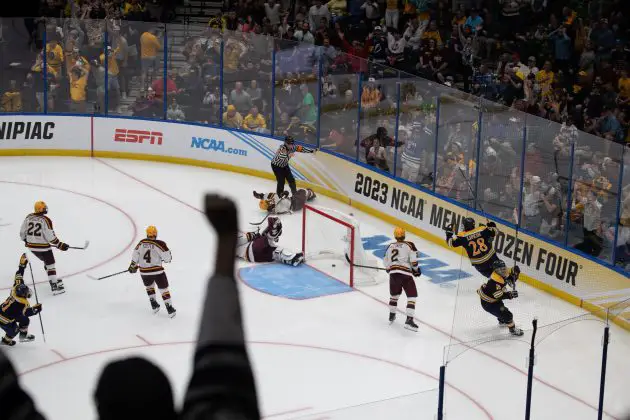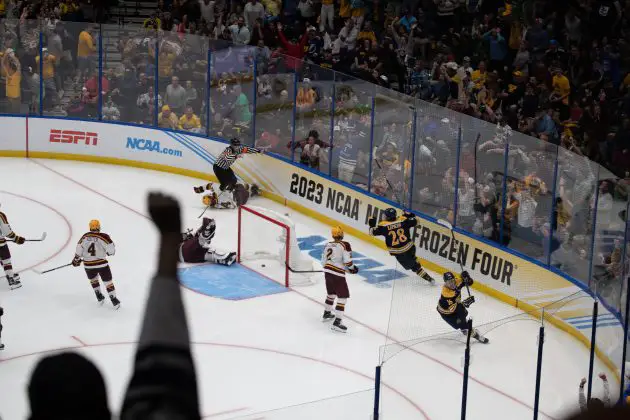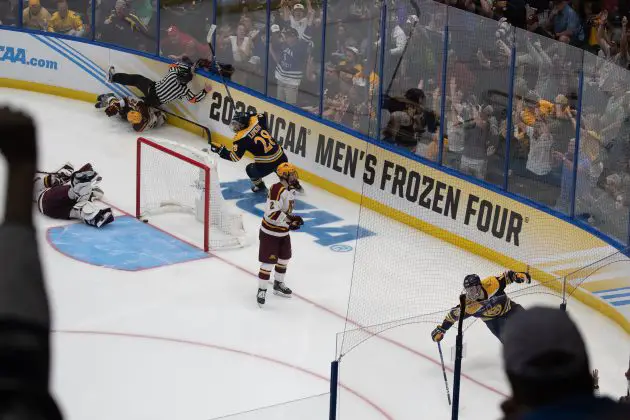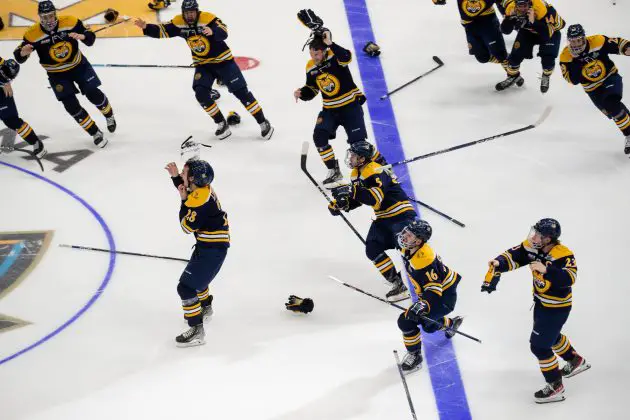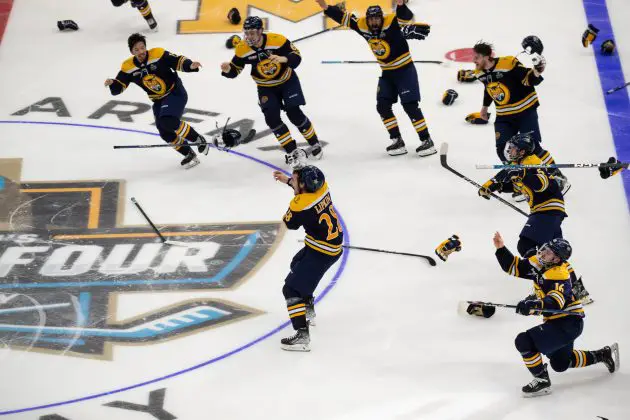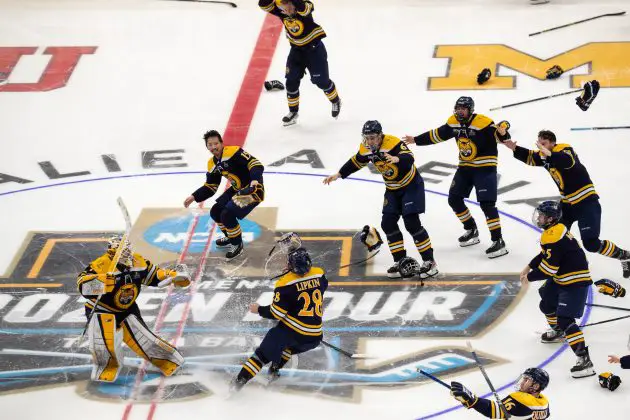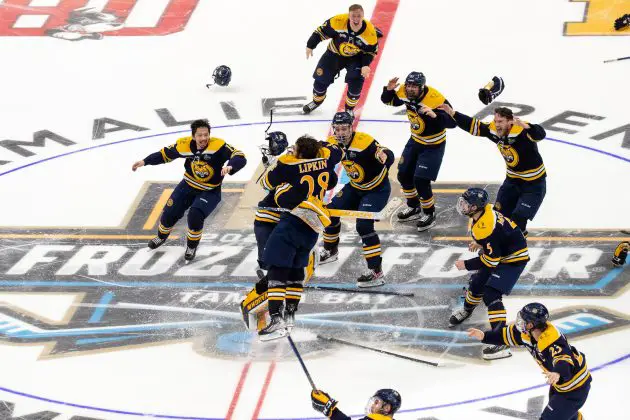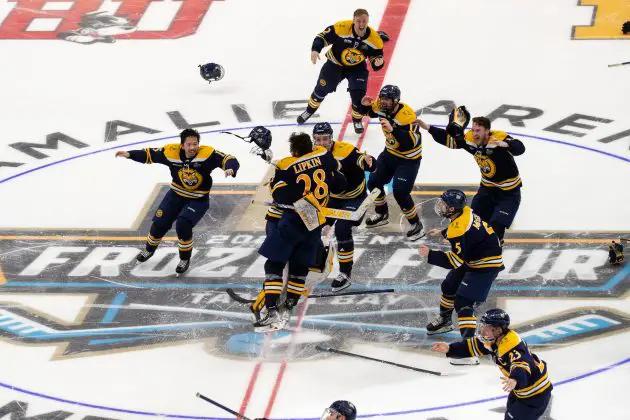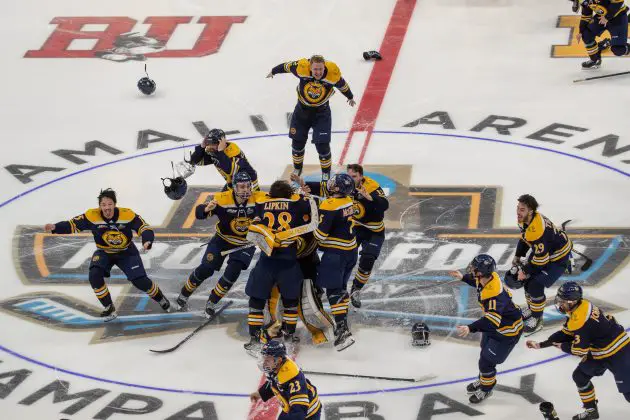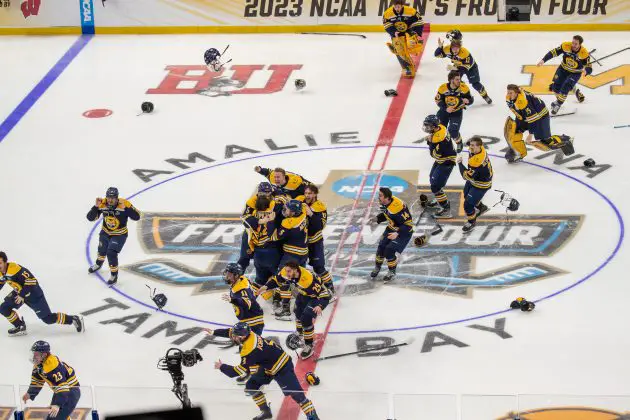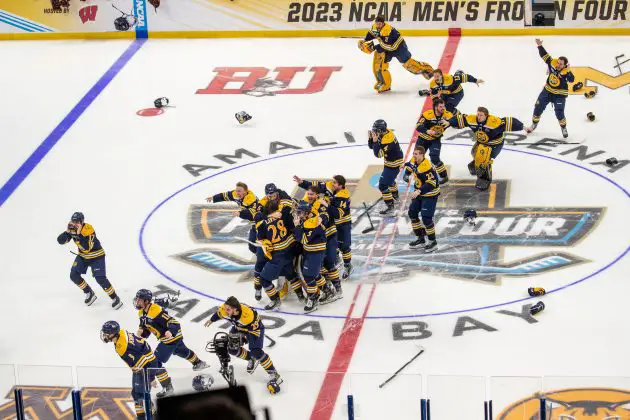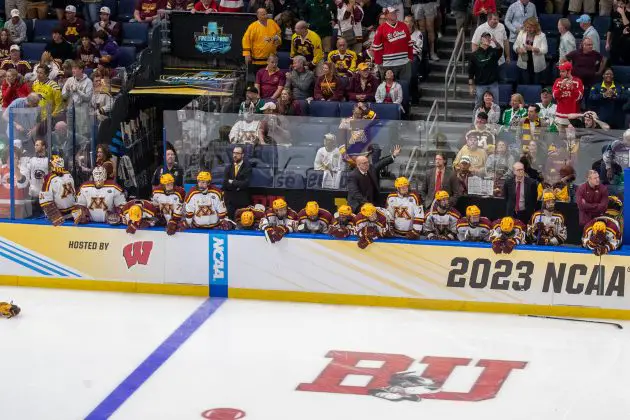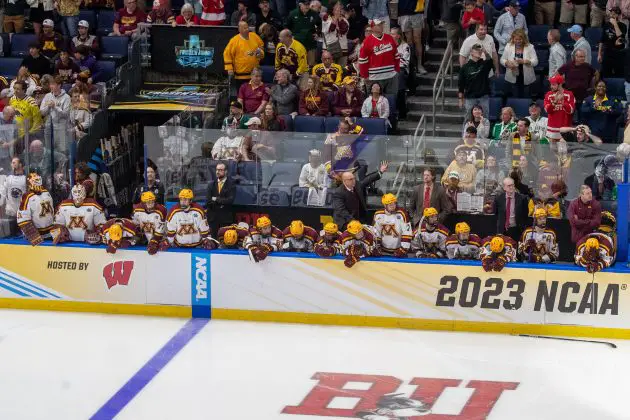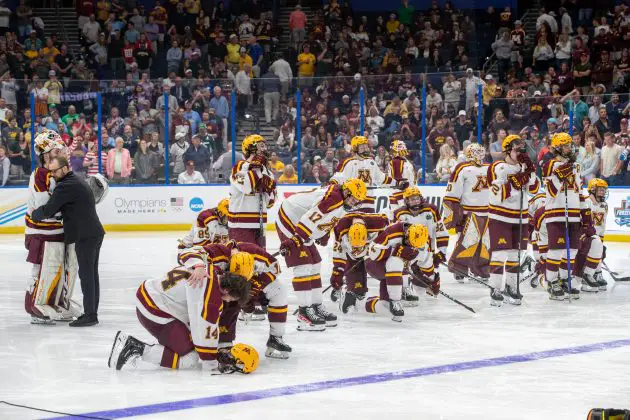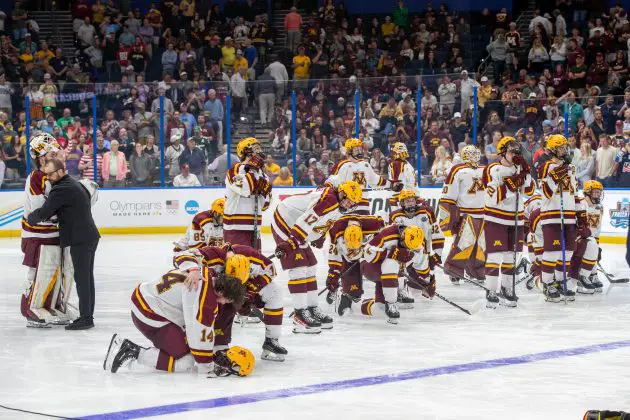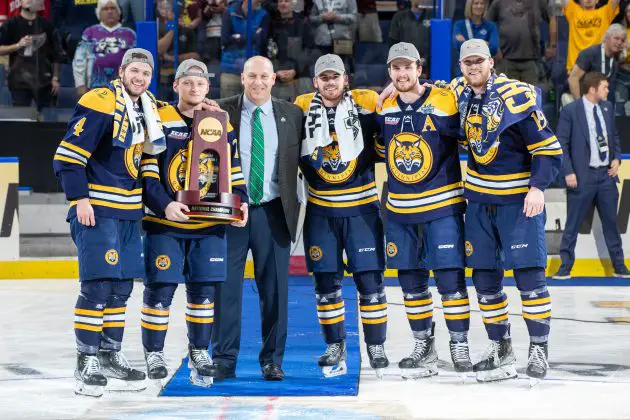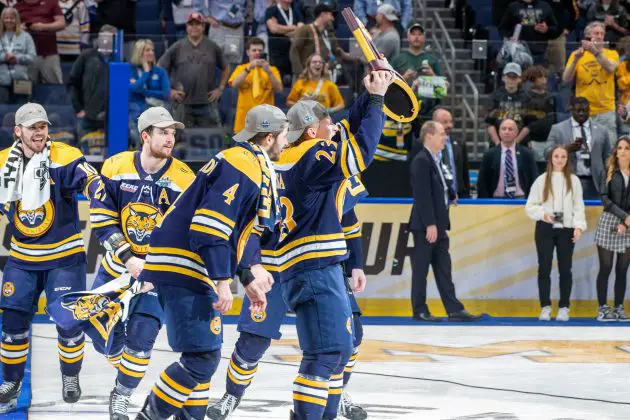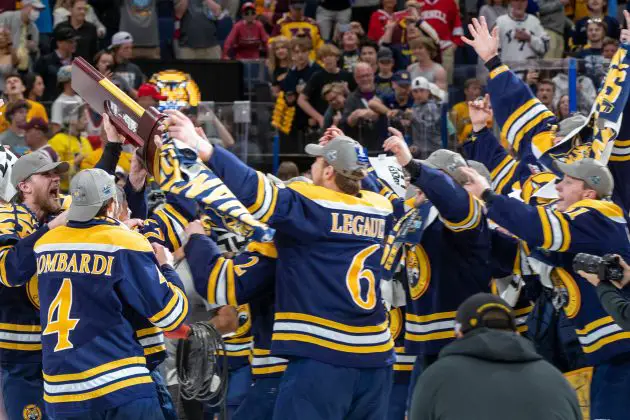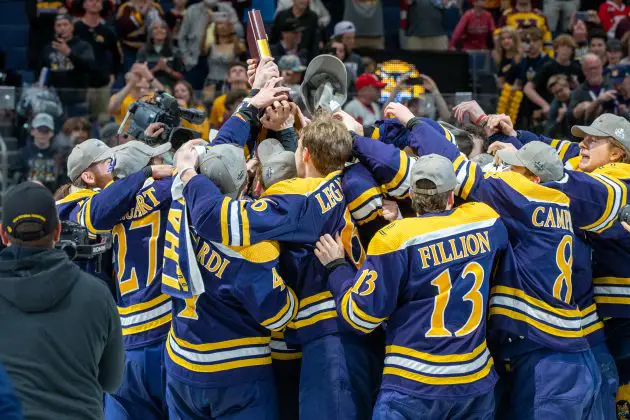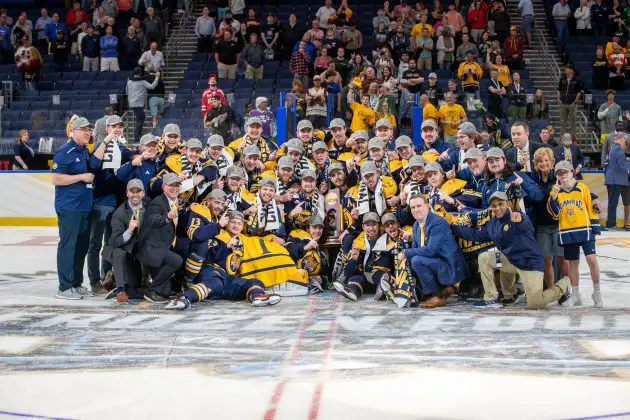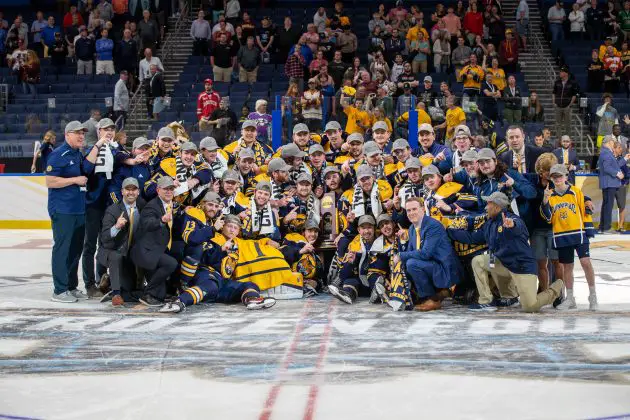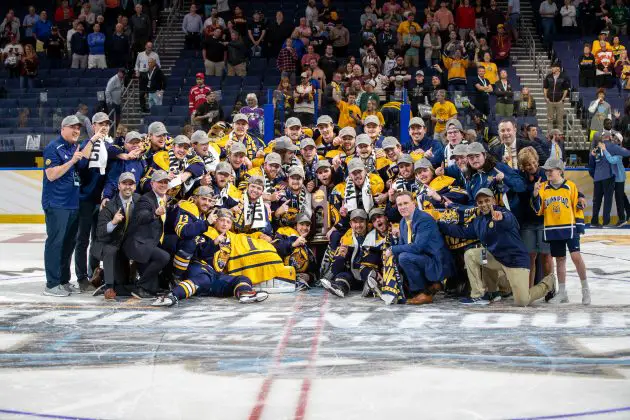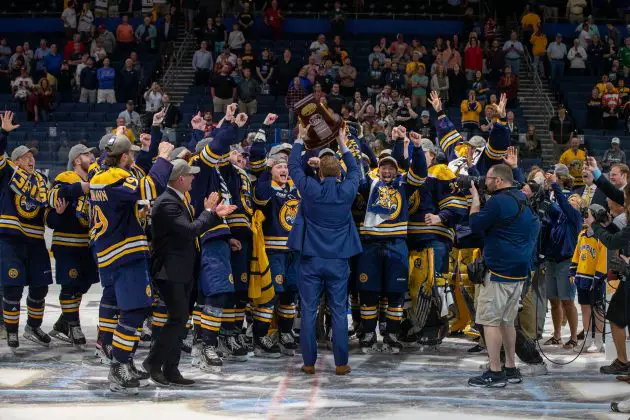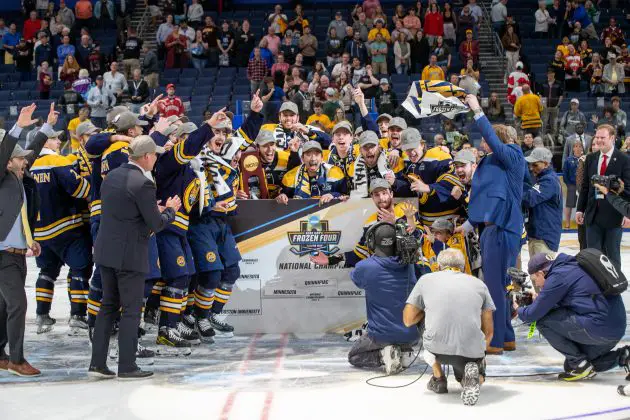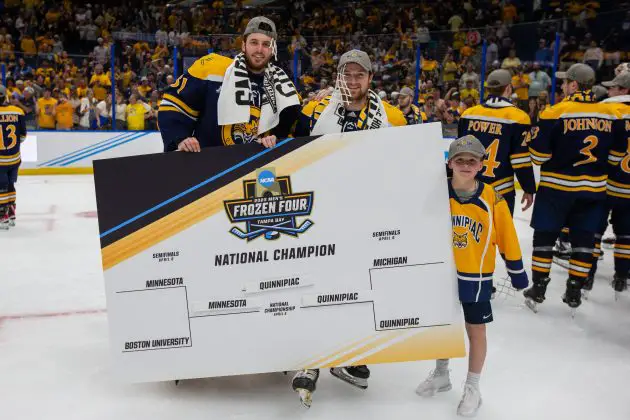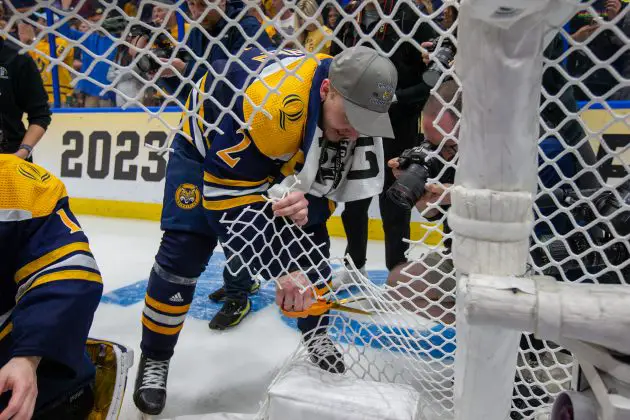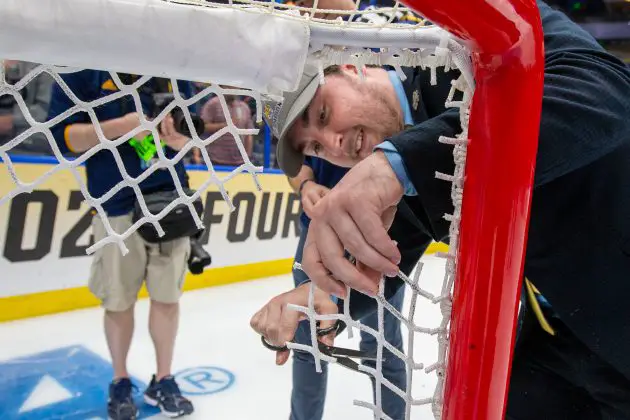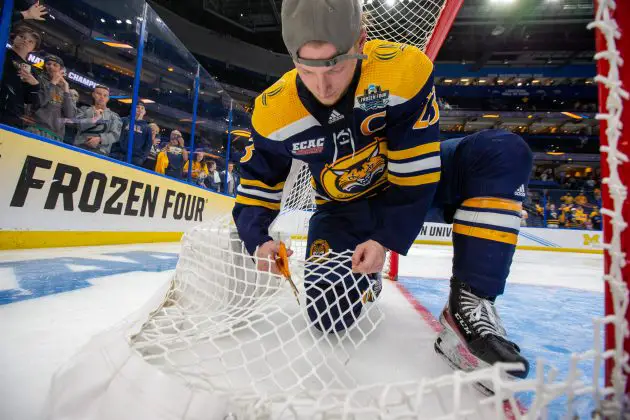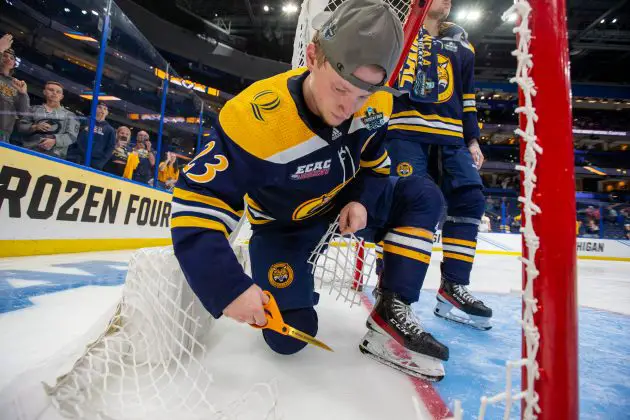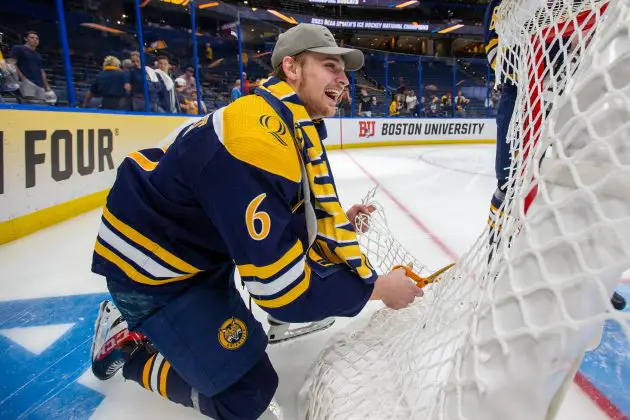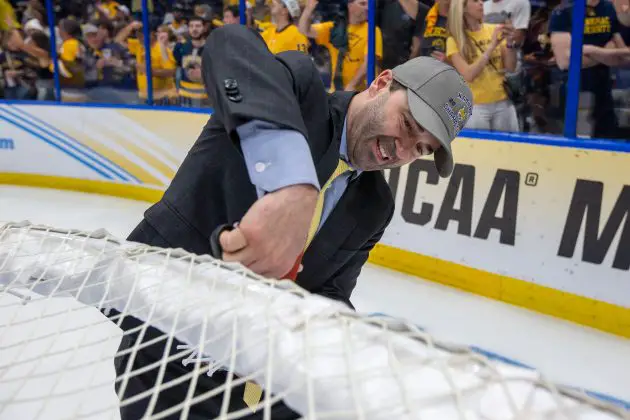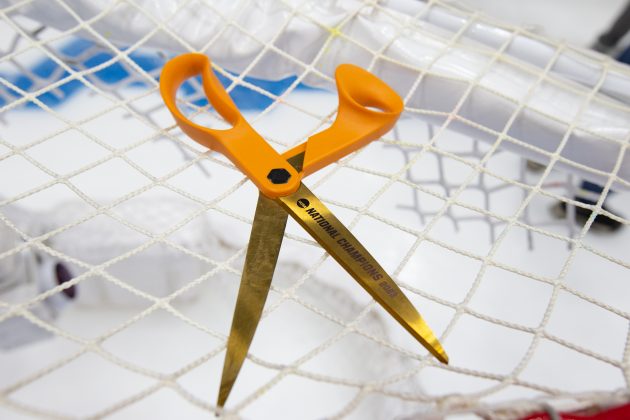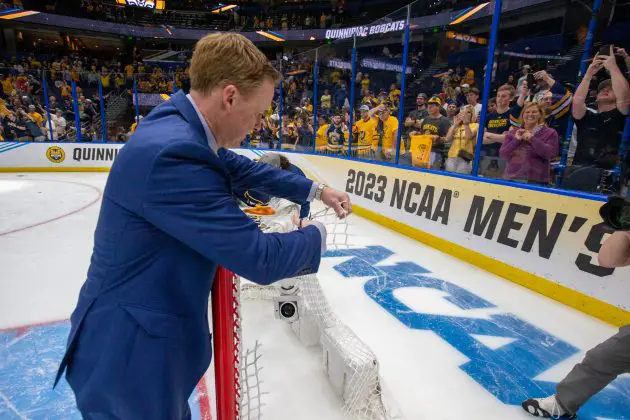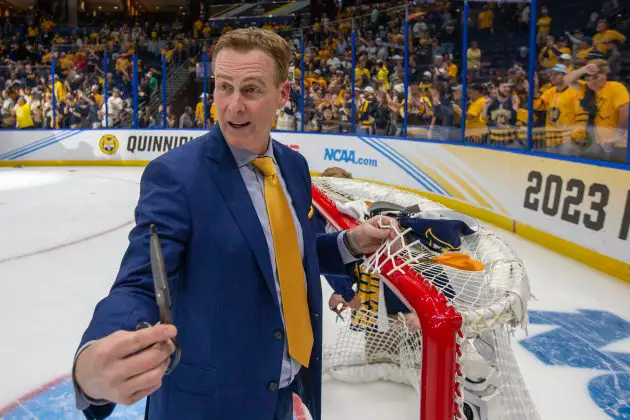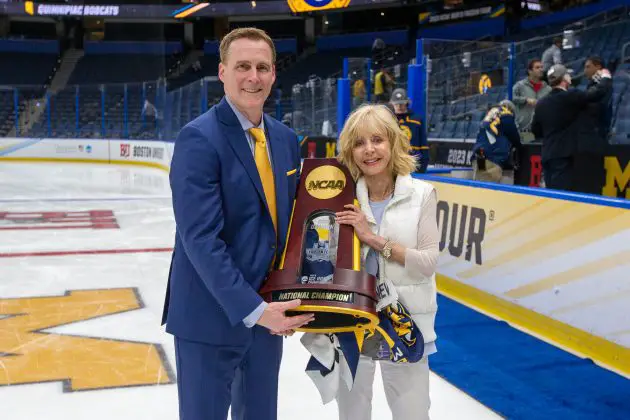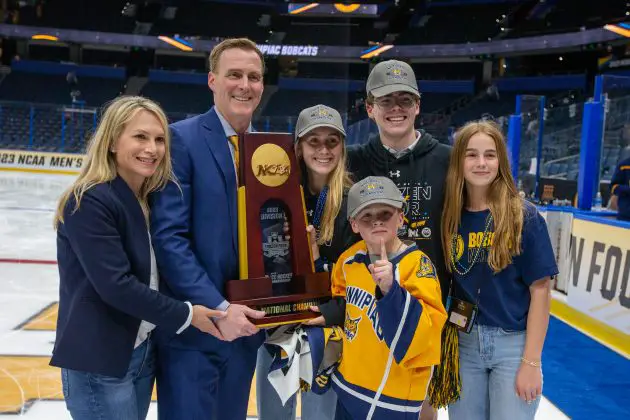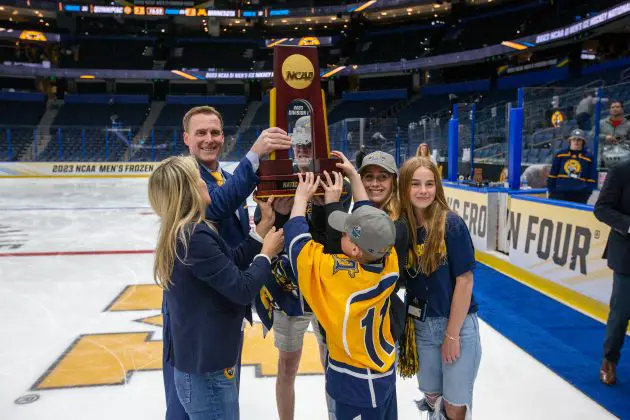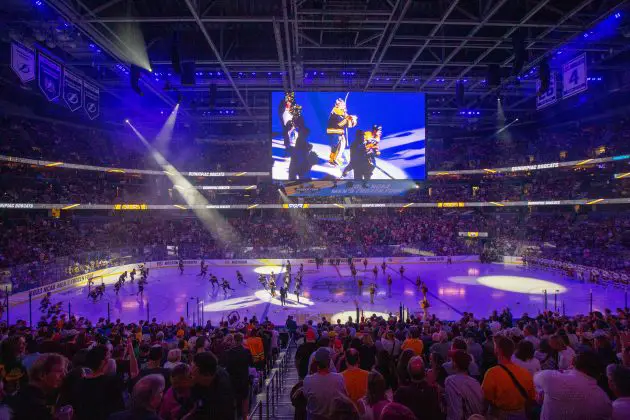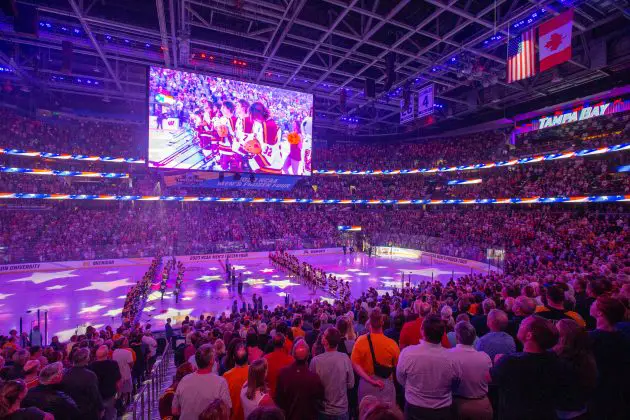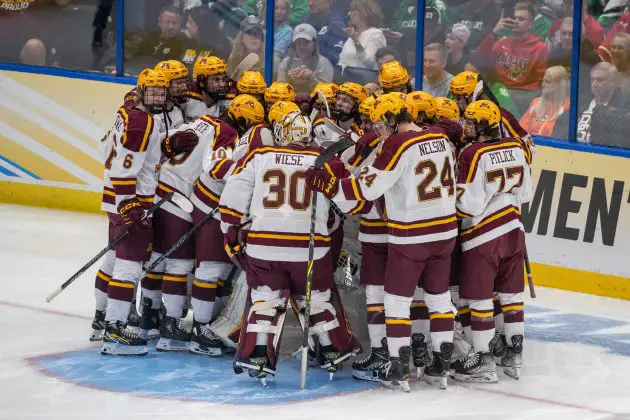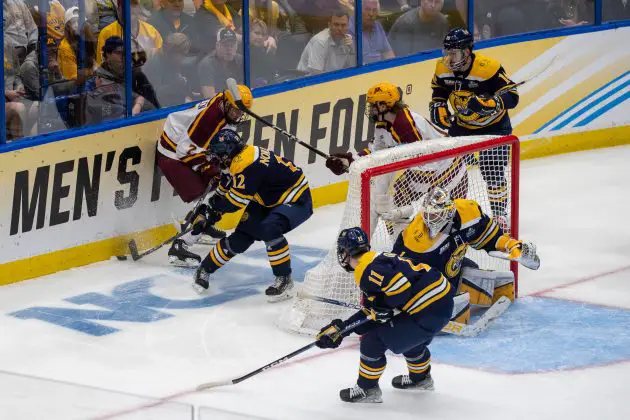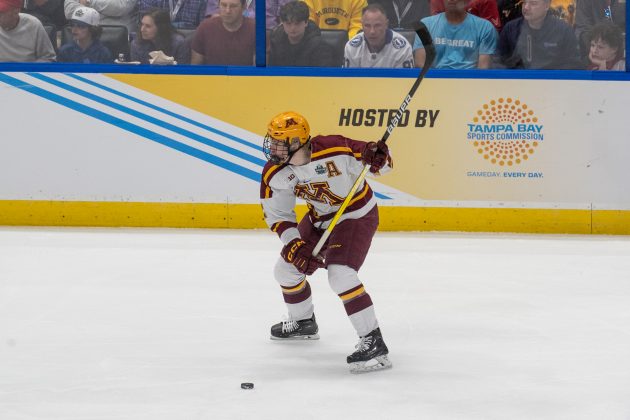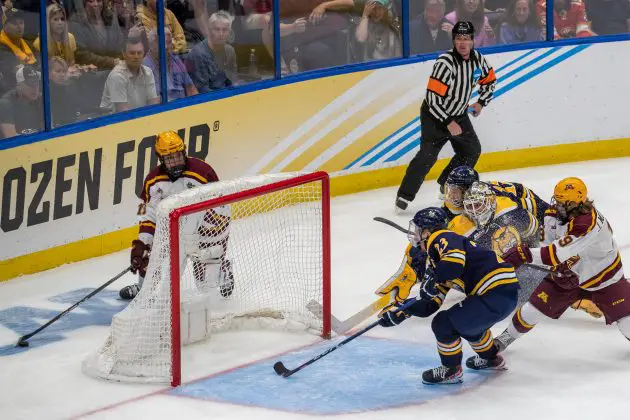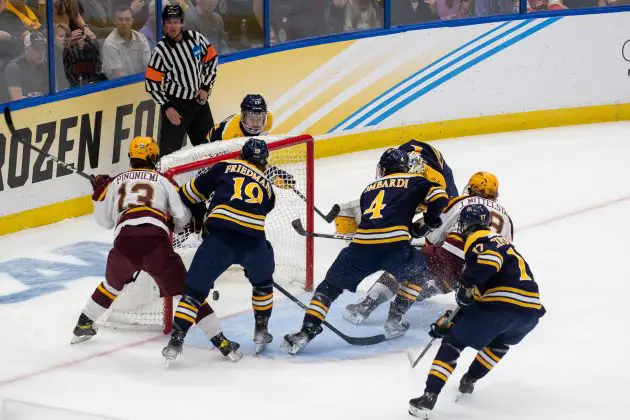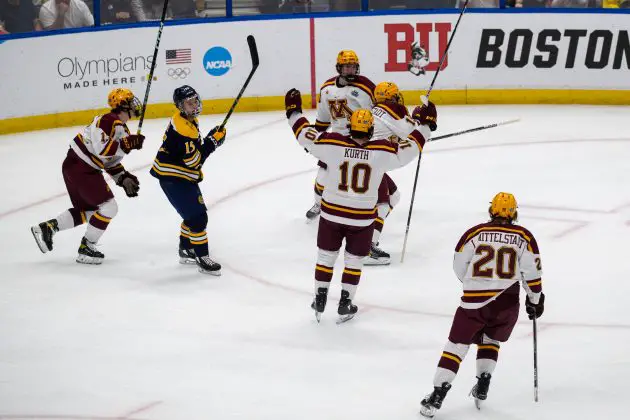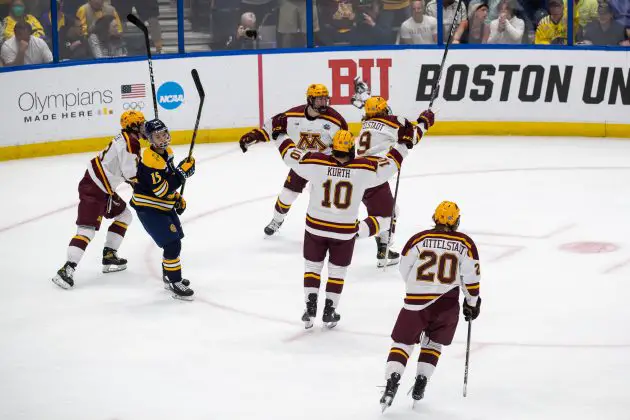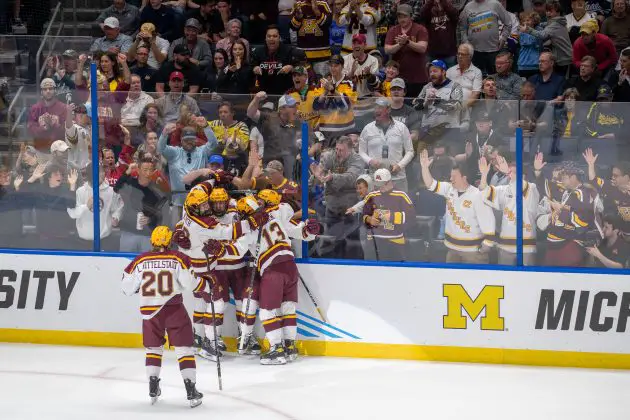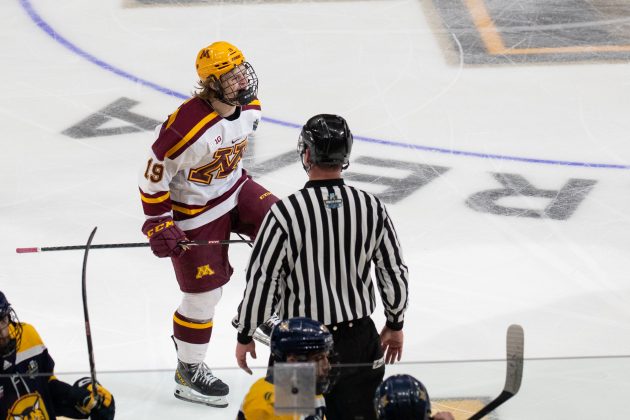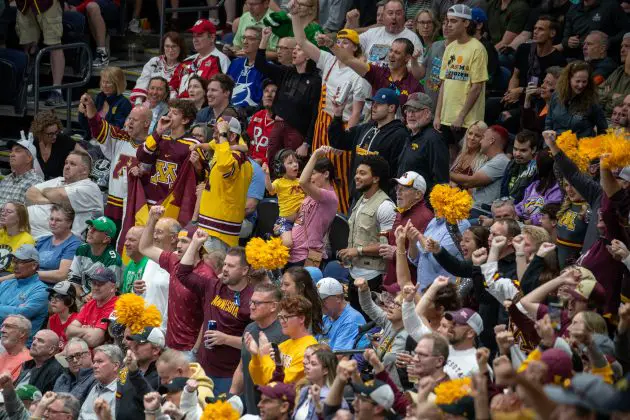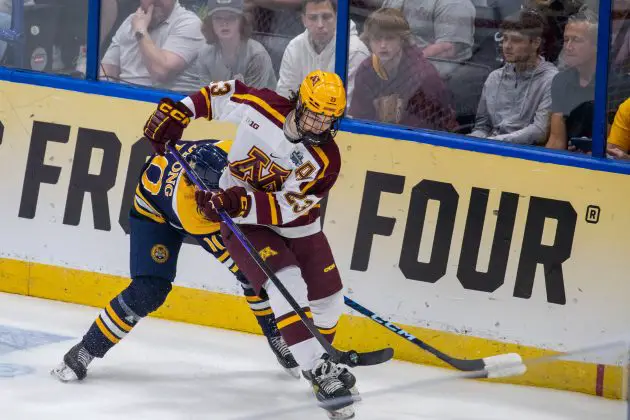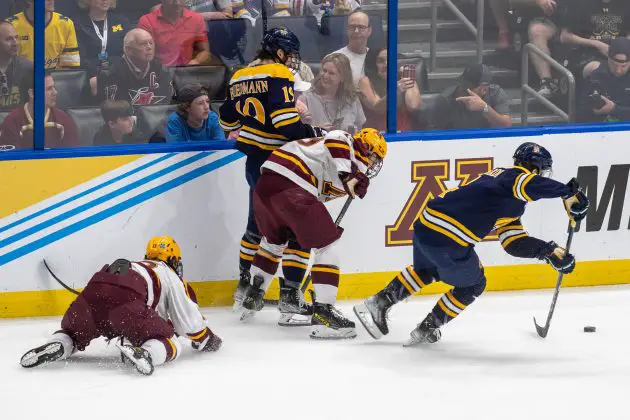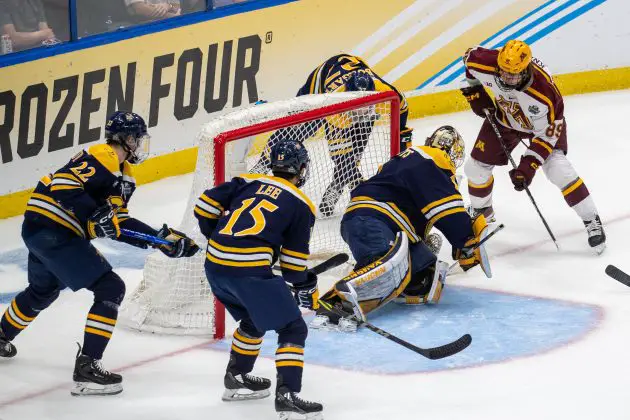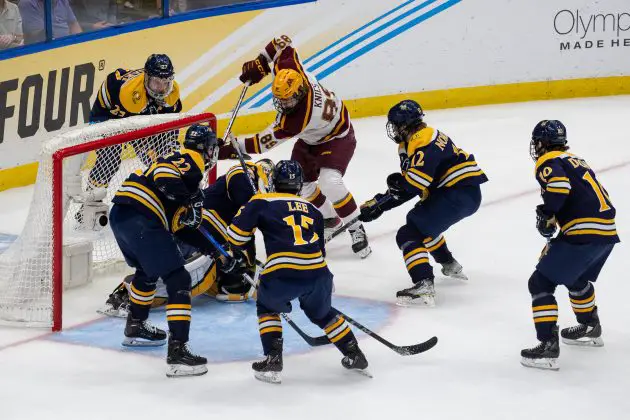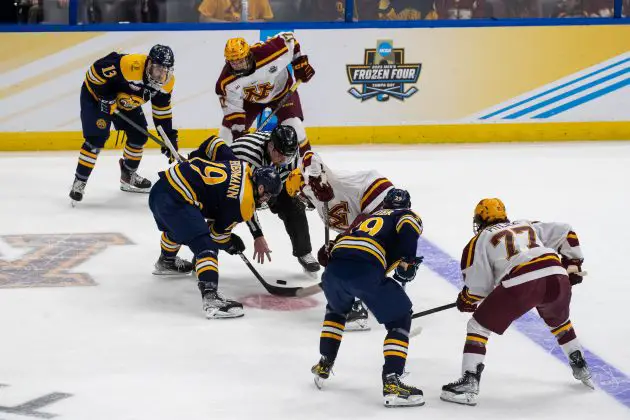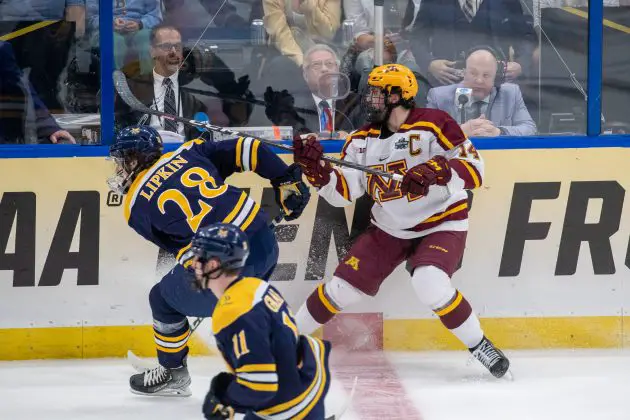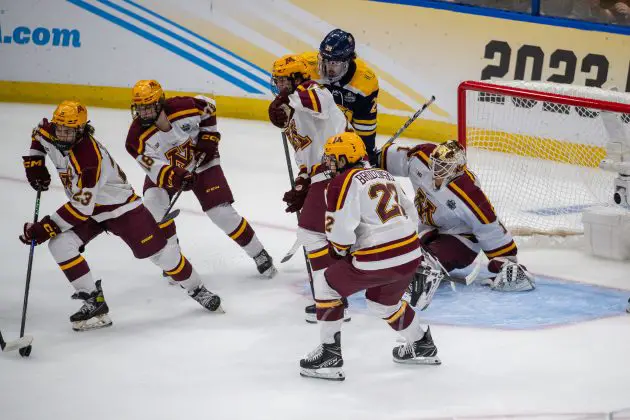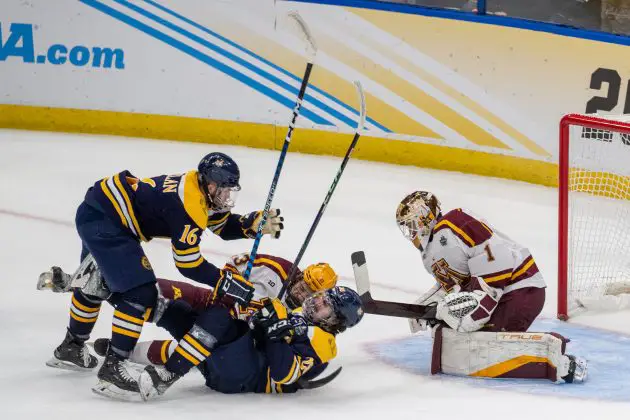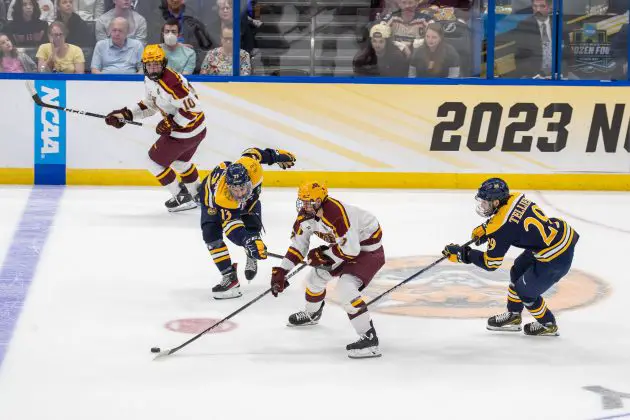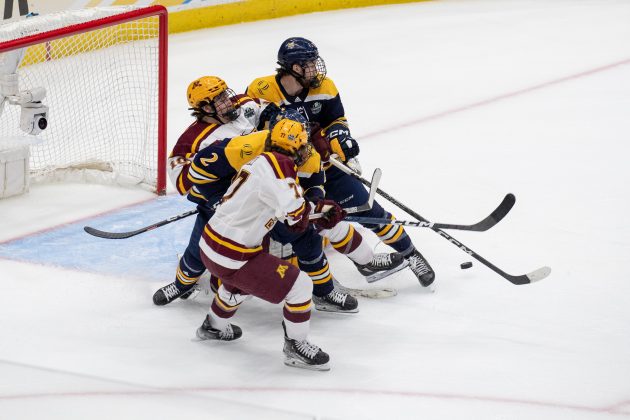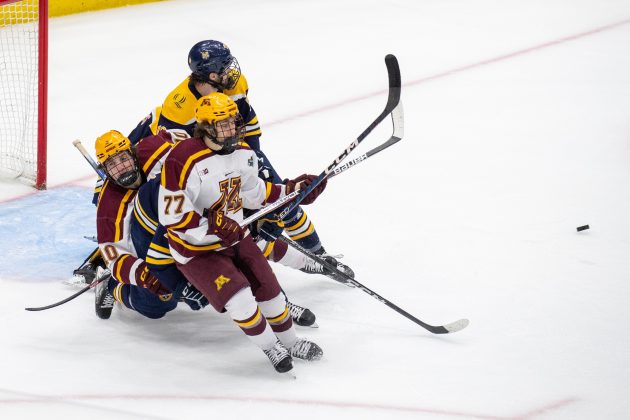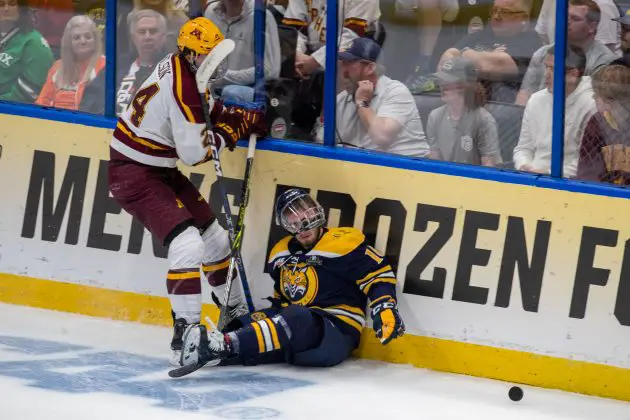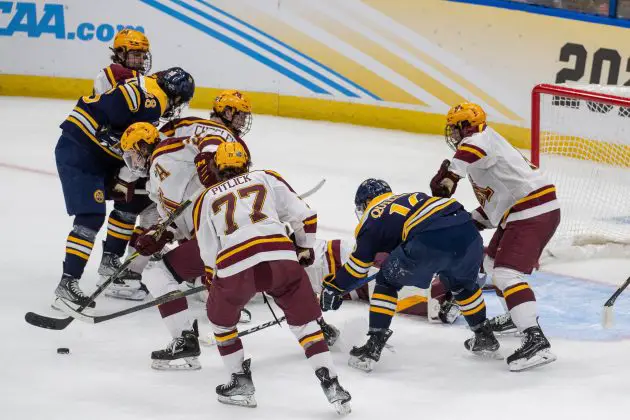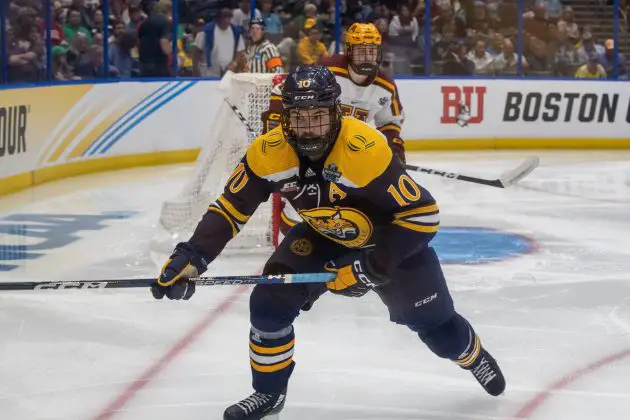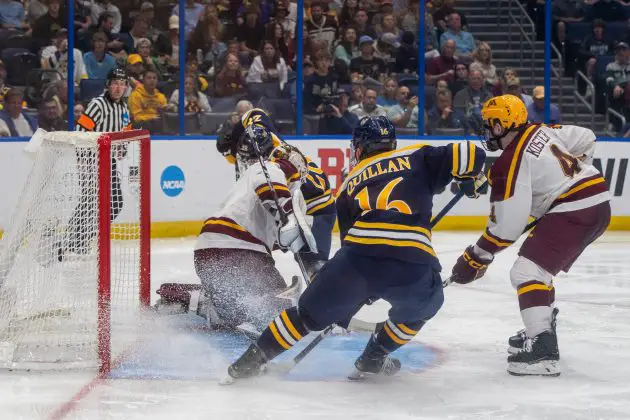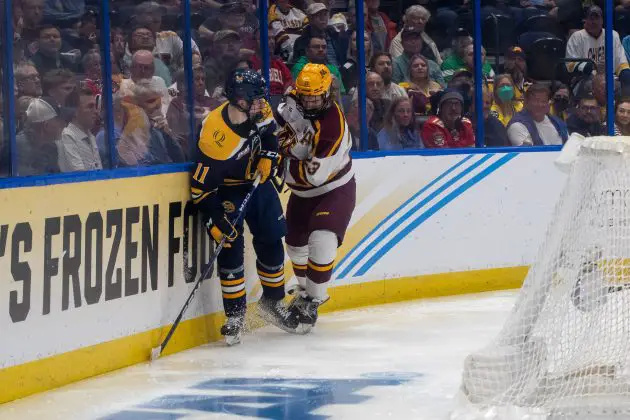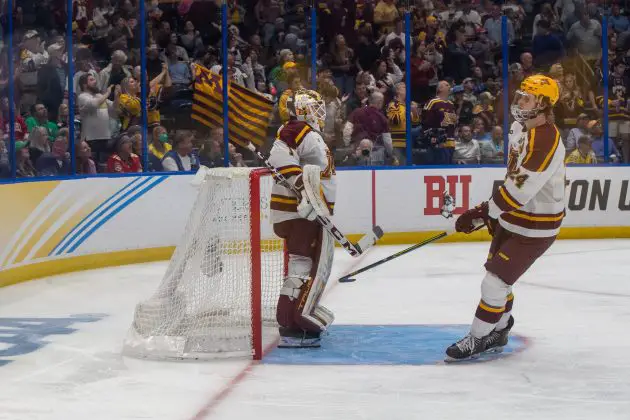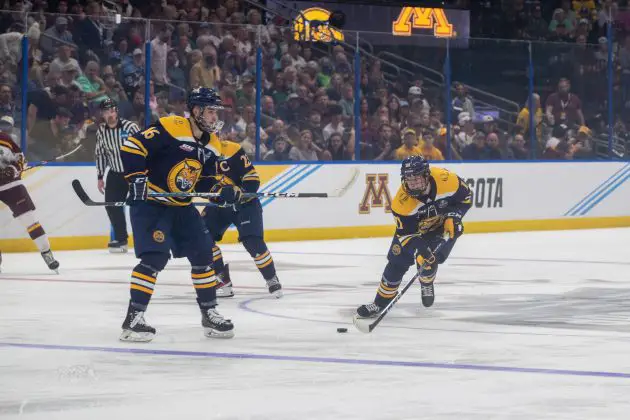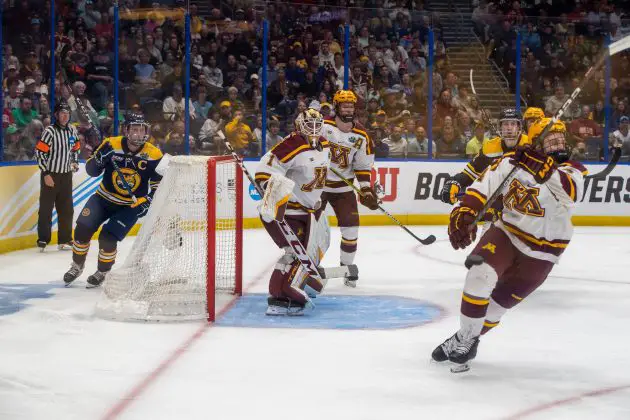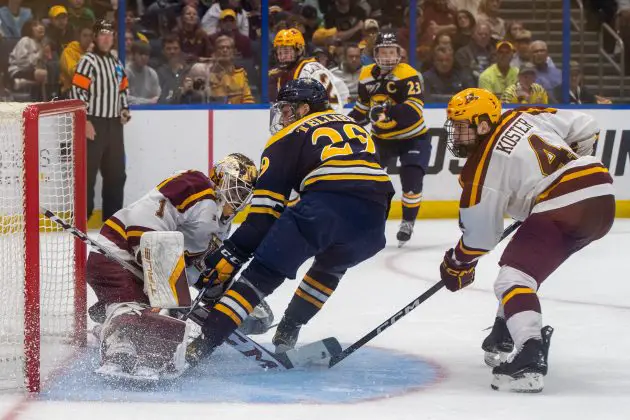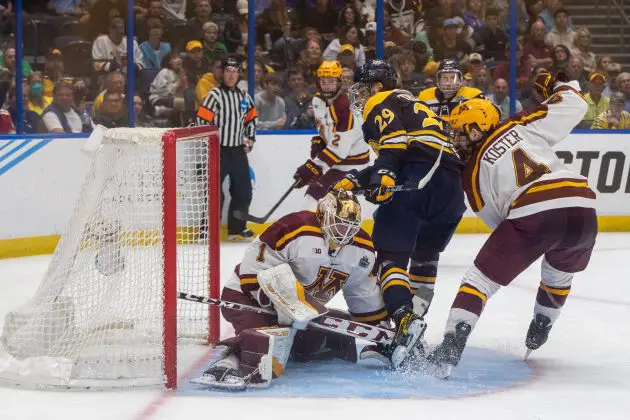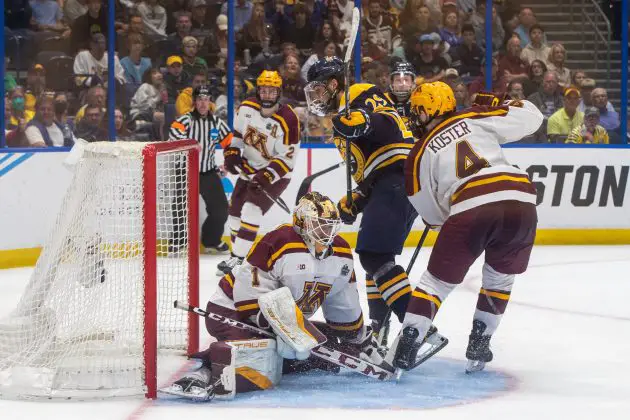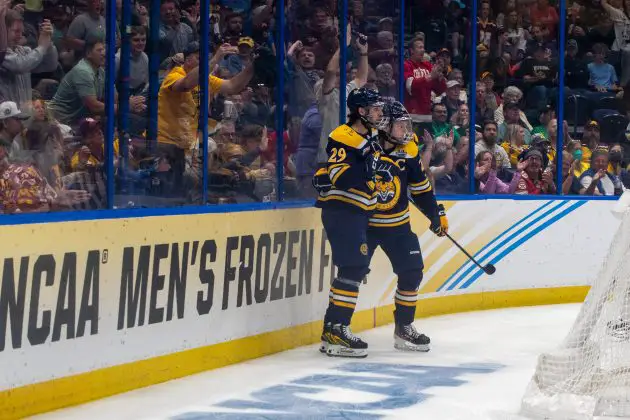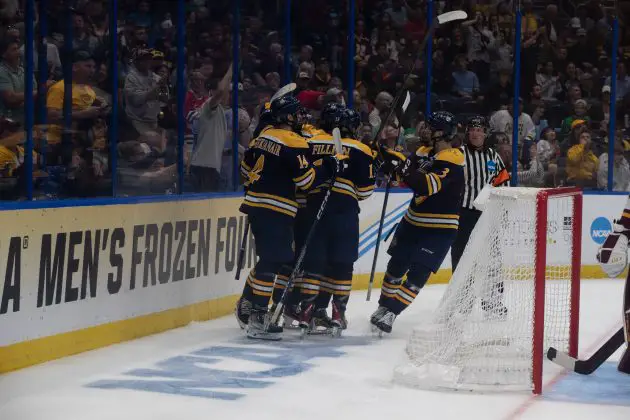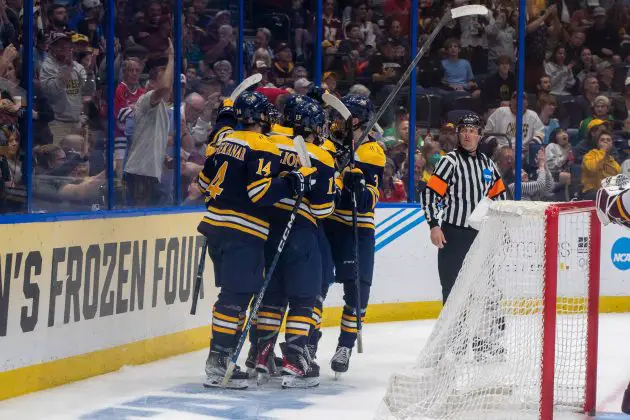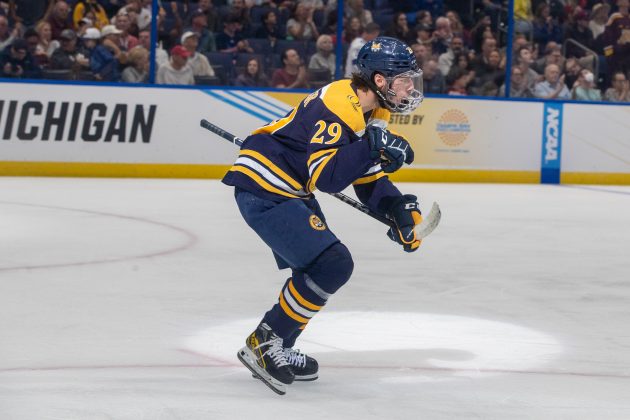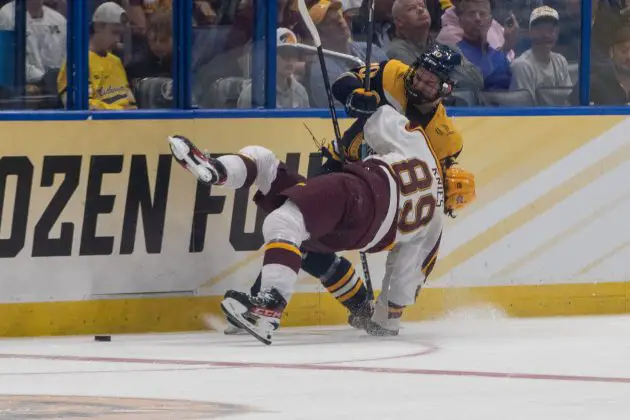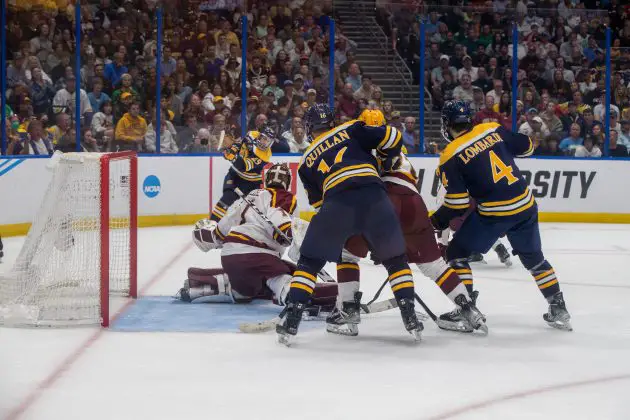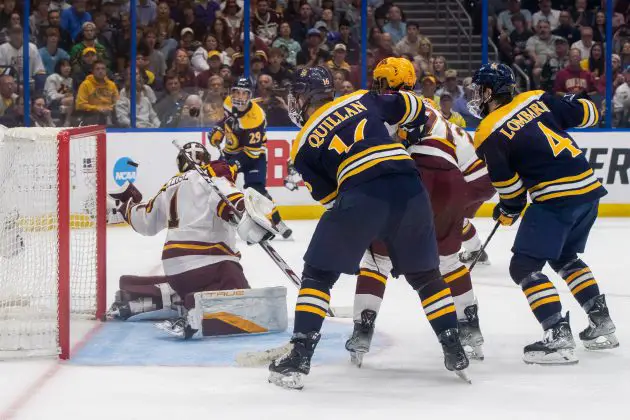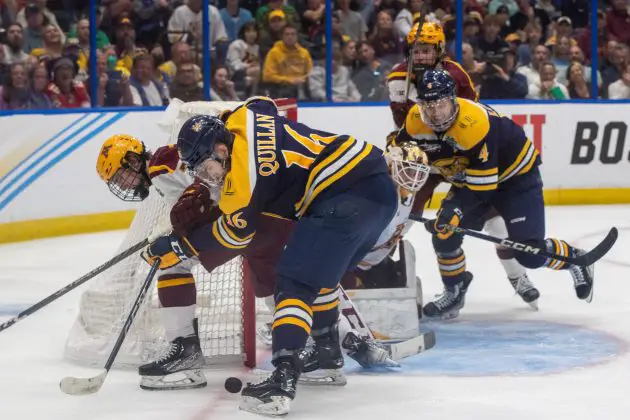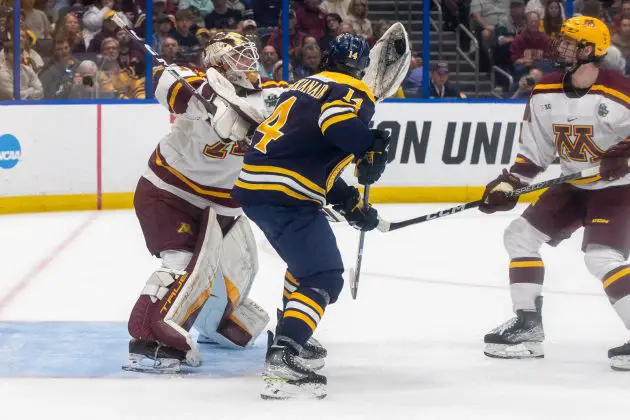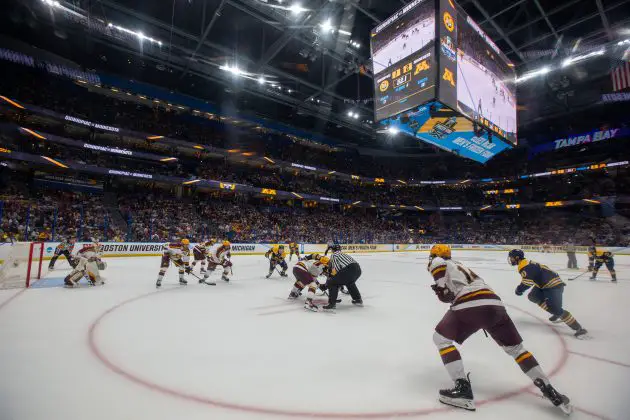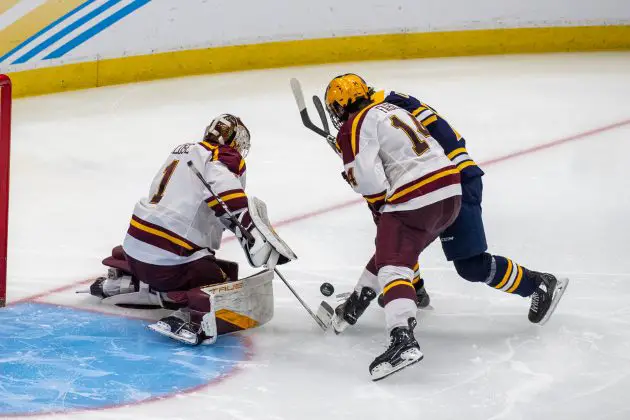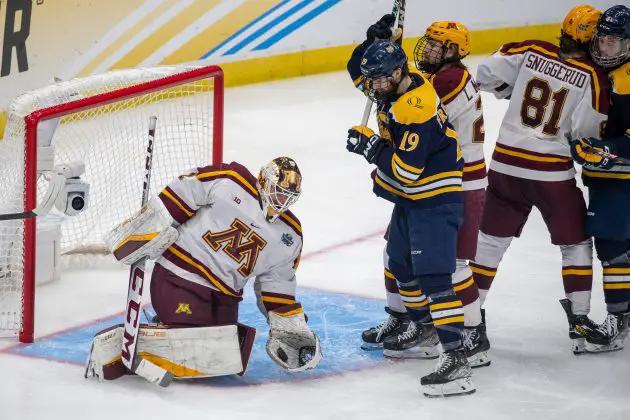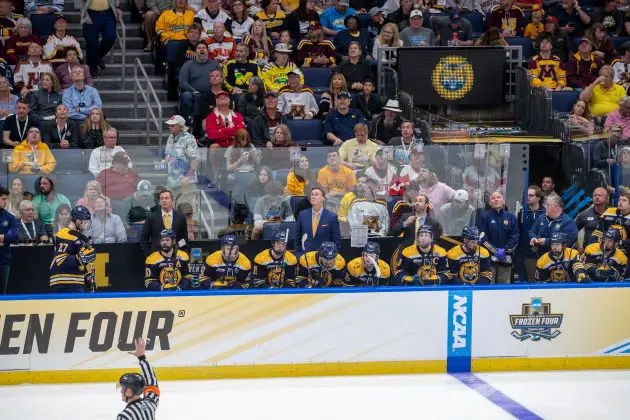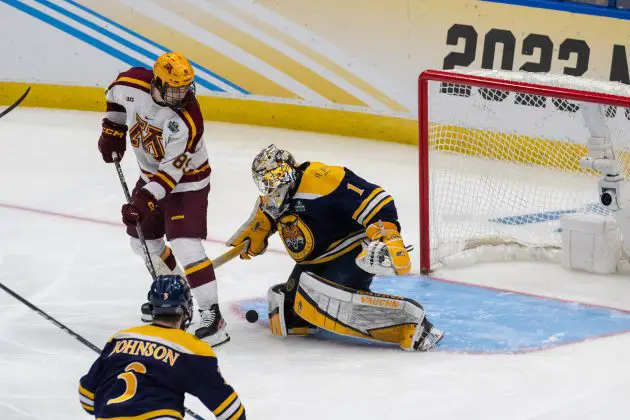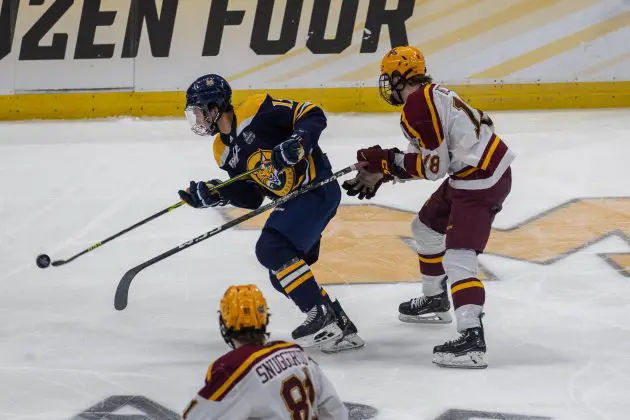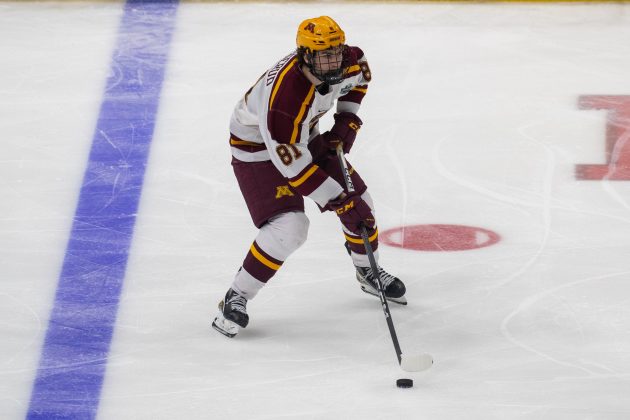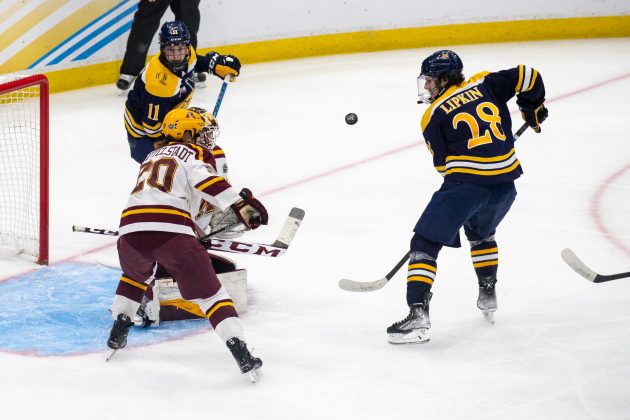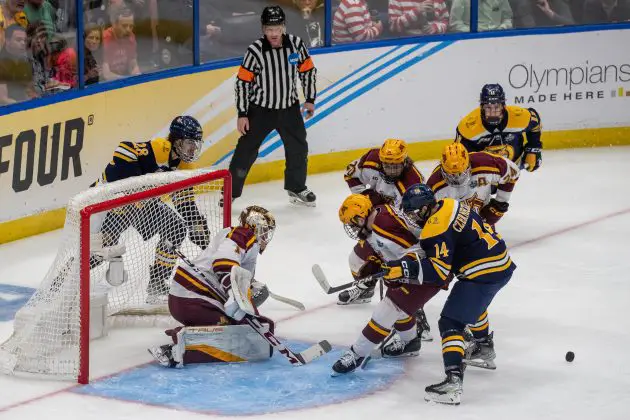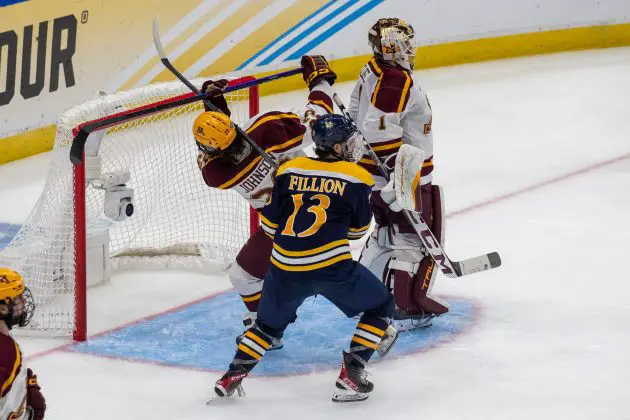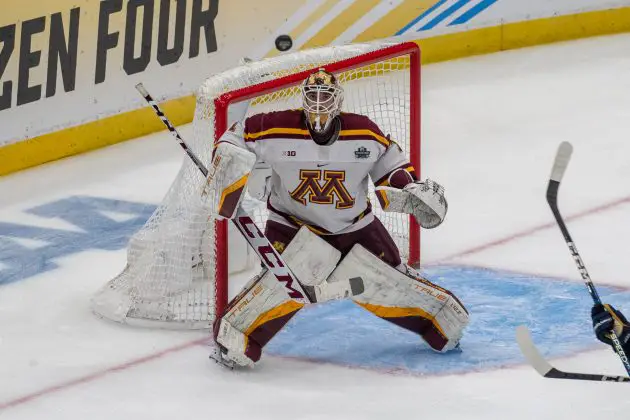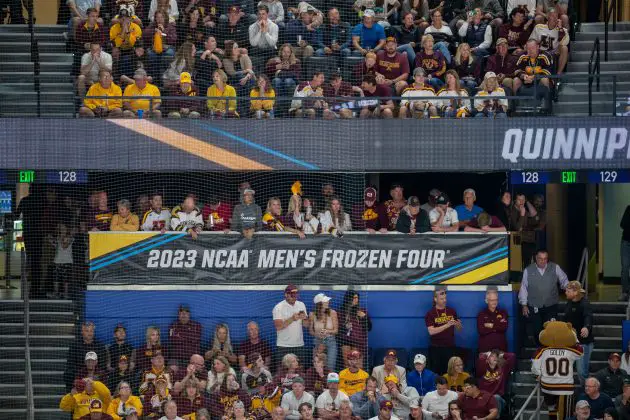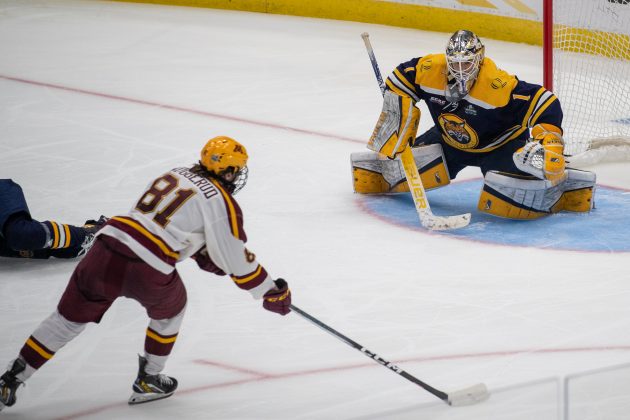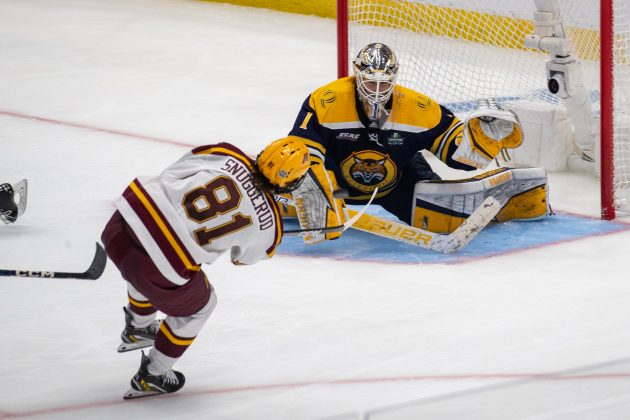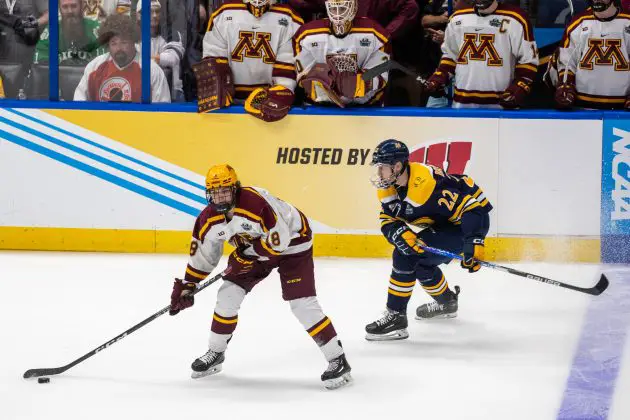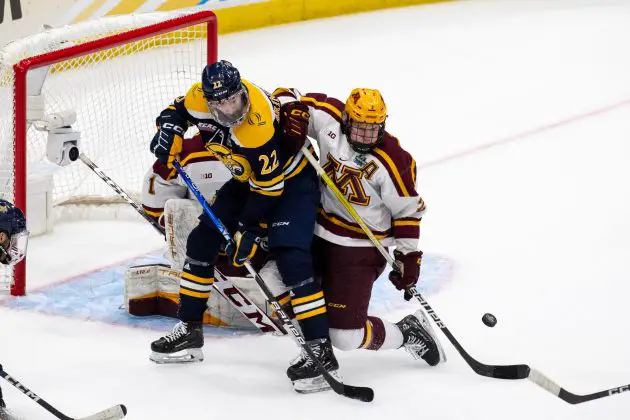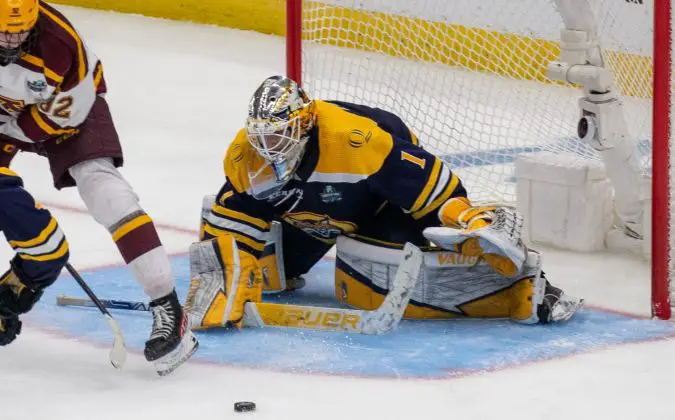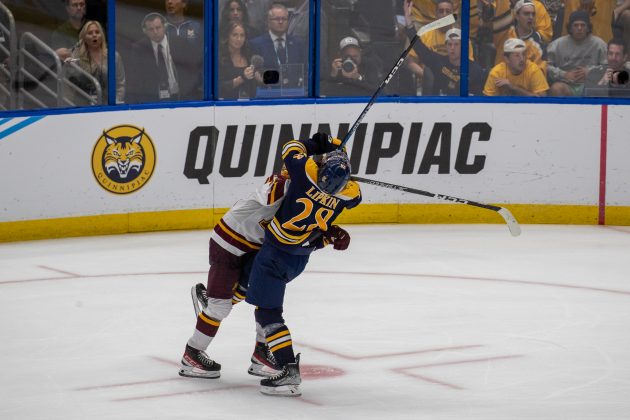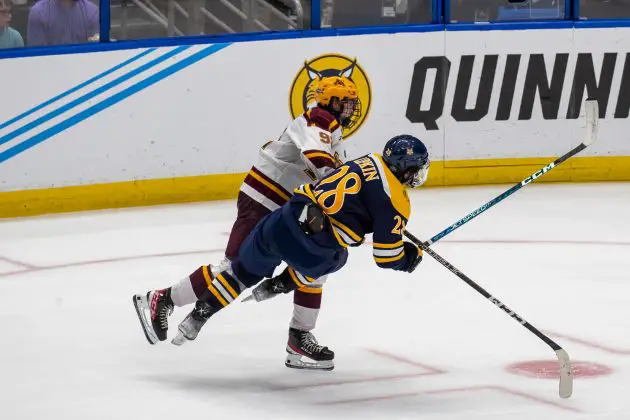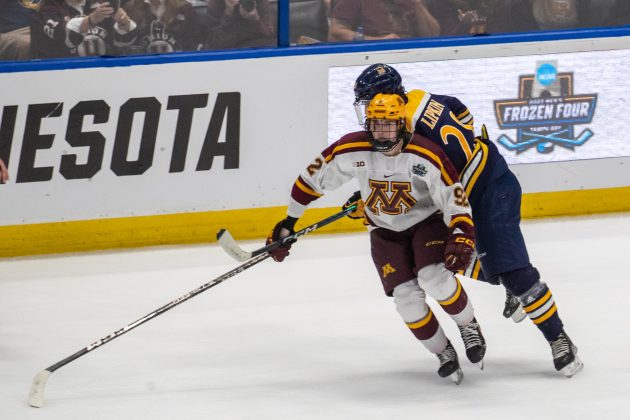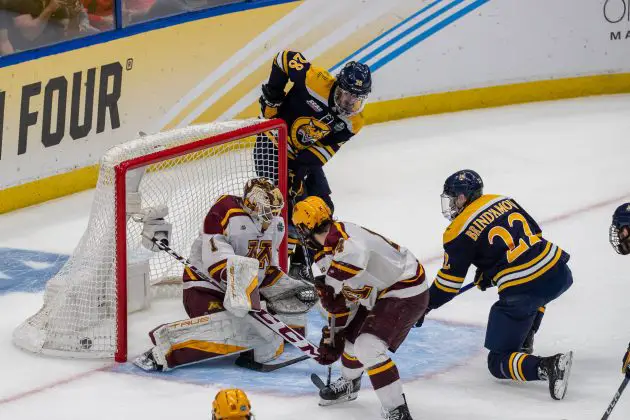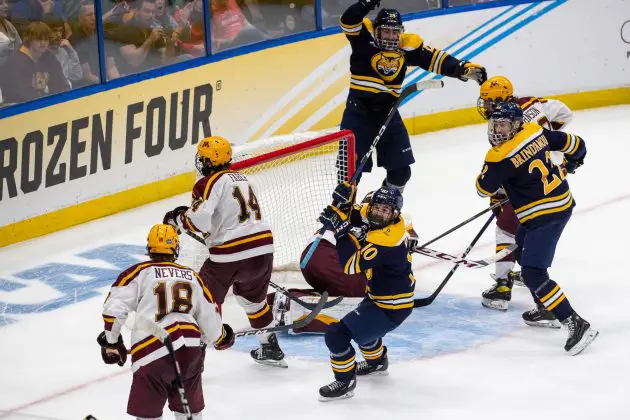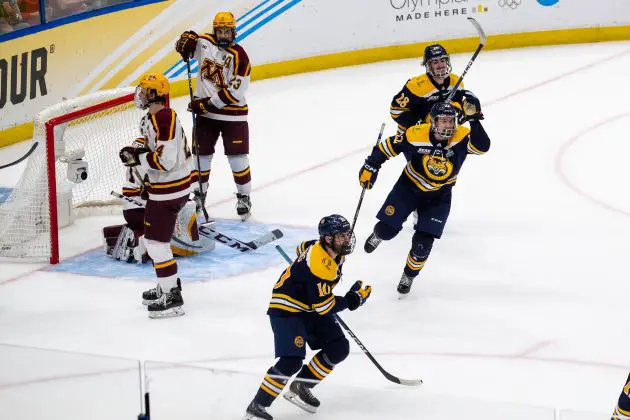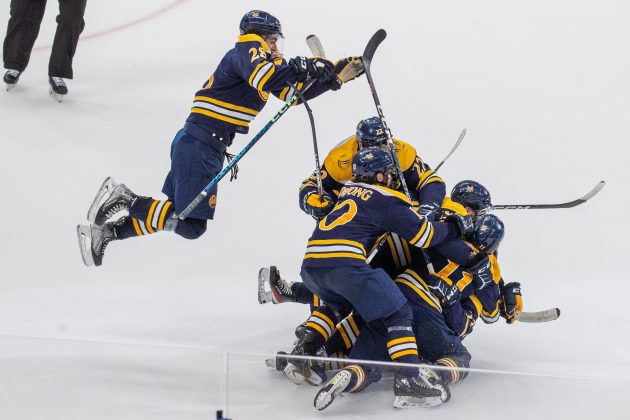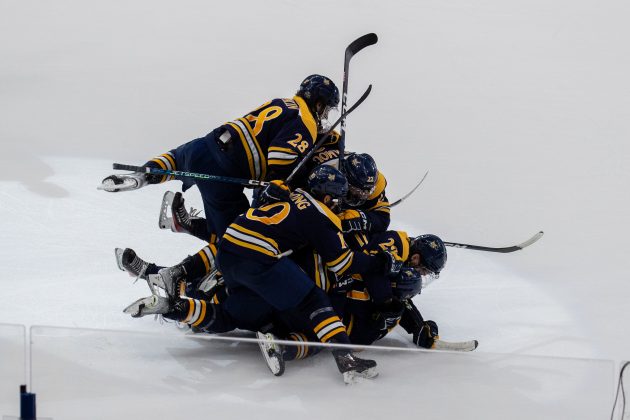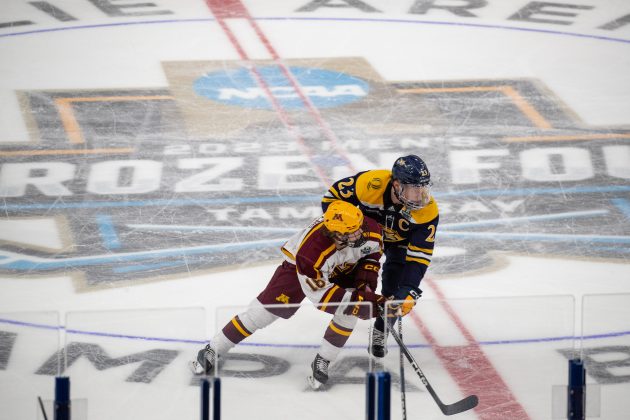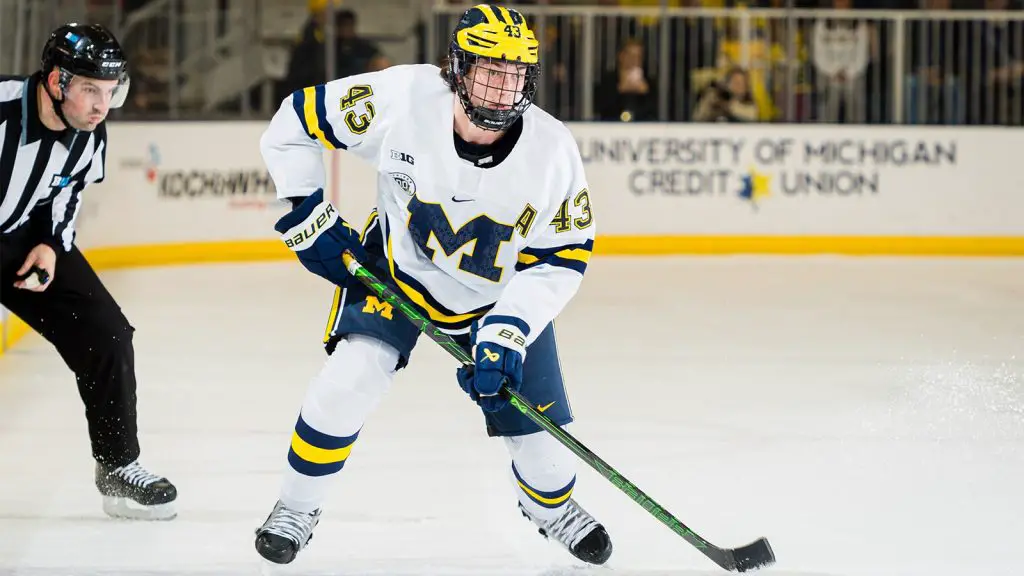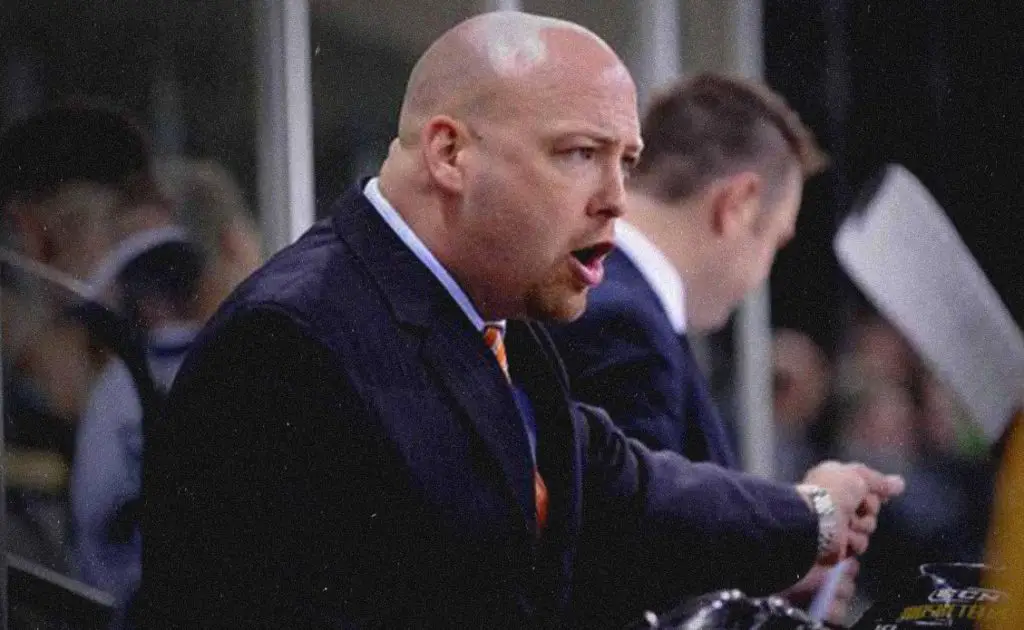
Minnesota State announced Monday that Luke Strand has been named the fifth head men’s hockey coach in program history.
Strand replaces Mike Hastings, who left Minnesota State for a similar position at the Wisconsin on March 30.
“I am extremely happy to have Coach Strand on board and ready to lead our team to the next level,” said Minnesota State president Dr. Edward Inch in a news release. “His record of success, engagement with the community, and leadership is exemplary, and I look forward to all that he will bring to Mankato and our men’s ice hockey program.”
Strand comes to Minnesota State after spending the last year as an assistant at Ohio State where he helped lead the Buckeyes to a 21-16-3 record, including a third-place finish in the Big Ten and a berth in the 2023 NCAA tournament that included a convincing 8-1 opening-round win over Harvard.
Minnesota State director of athletics Kevin Buisman is eager to welcome Strand to the program and anticipates a bright future.
“We are very excited to bring this process to closure and to announce this tremendously important leadership change,” Buisman said. “The Maverick hockey brand is founded on outworking our opponents in every facet of the game, and Luke has created a reputation for developing a culture built on that identity. He impresses me as someone who is more than ready to put in the type of hard work he knows will be necessary to continue the program’s upward trajectory by building upon a solidly established foundation.
“Luke is well-connected across the game and has a wide array of valuable experiences. Through our extensive conversations, I am confident that he is committed to operating a program on and off the ice that will make all those who support Maverick hockey very proud.”
Prior to his time at Ohio State, Strand coached in the USHL for the Sioux City Musketeers for five seasons, guiding them to an impressive Clark Cup title in 2022 behind a 41-16 record. While with the Musketeers, Strand also served the organization as president of hockey operations.
“It is an honor to be chosen as the next men’s hockey coach at Minnesota State University,” said Strand. “I am grateful to President Inch and director of athletics Kevin Buisman for this opportunity. The alumni who have paved the path before us have proven that this is a special place, and that is an important responsibility to uphold as we start this next chapter. We will play with tenacity, pace, and be connected as a team. I cannot wait to start with our student-athletes, welcome our incoming class of players, and discover future Mavericks.”
Strand is well-traveled and has experienced more than 600 games behind the bench. During his time with the Green Bay Gamblers as an assistant coach (2003-05), Strand coached former Mavericks standout Ryan Carter.
Strand then became the head coach at UW-Eau Claire from 2005 to 2007, before a stint as an assistant coach for the AHL’s Houston Aeros (2007-09). Strand had his first stop in Sioux City as head coach for the Musketeers from 2009 to 2011, joined the AHL’s Abbotsford Heat (2011-13), then signed on with the USHL’s Madison Capitols in 2014-15. Additionally, Strand was an associate head coach for Wisconsin during the 2015-16 season.
Outside the collegiate game, Strand served as part of the USA World Junior “A” Challenge player selection team from 2017 to 2022 and also spent time as an amateur scout for the NHL’s Calgary Flames in 2016-17.
A Wisconsin native, Strand played junior hockey for the North Iowa Huskies of the USHL before starting a four-year collegiate career at UW-Eau Claire, where he also played baseball. During his time as a Blugold, Strand played in 104 games, scoring 41 goals and recording 44 assists for a total of 85 points. Following the stop in Eau Claire, Strand played three years of professional hockey for the Madison Monsters and Madison Kodiaks of the UHL.
Minnesota State went 25-13-1 this past season.
